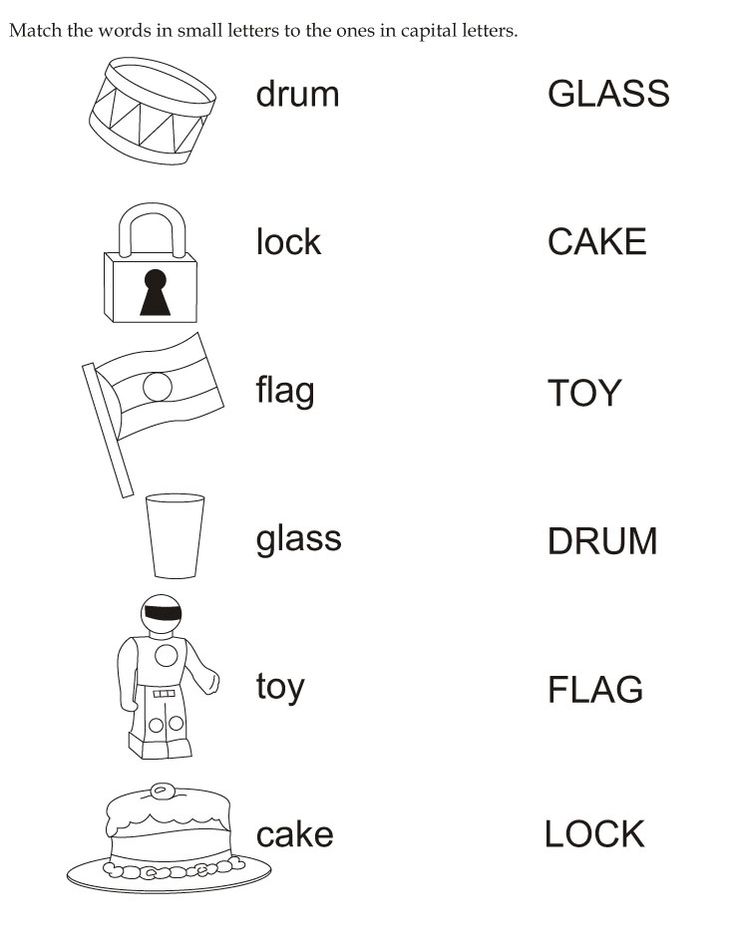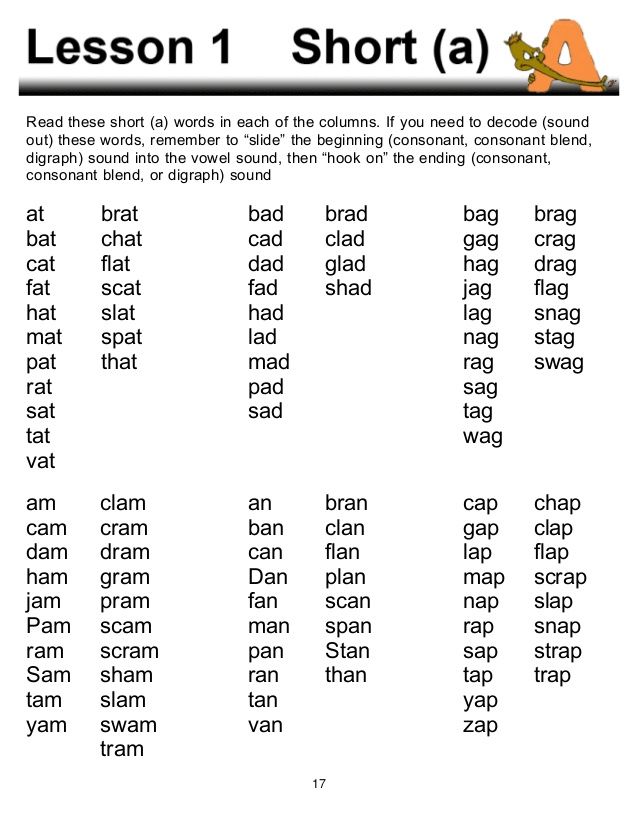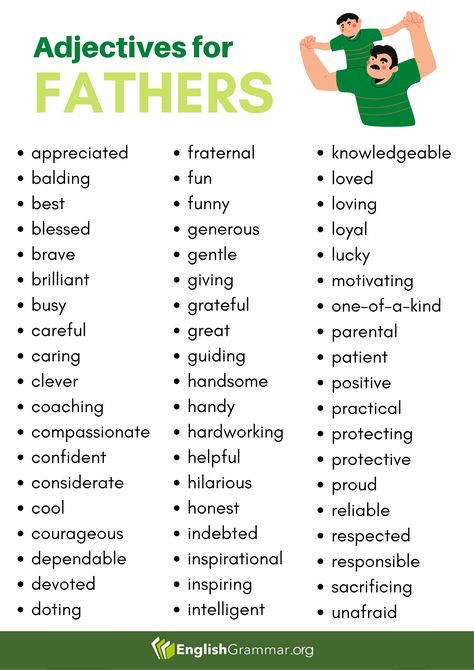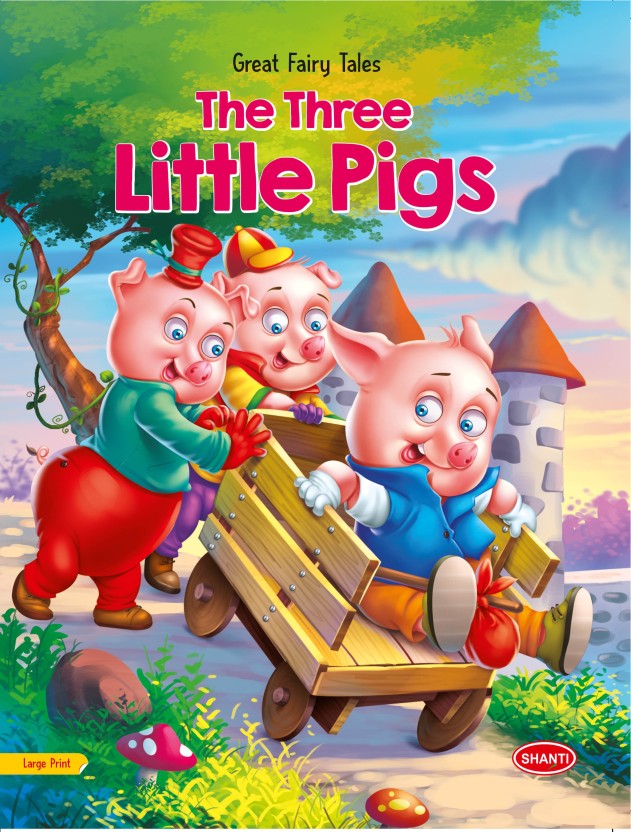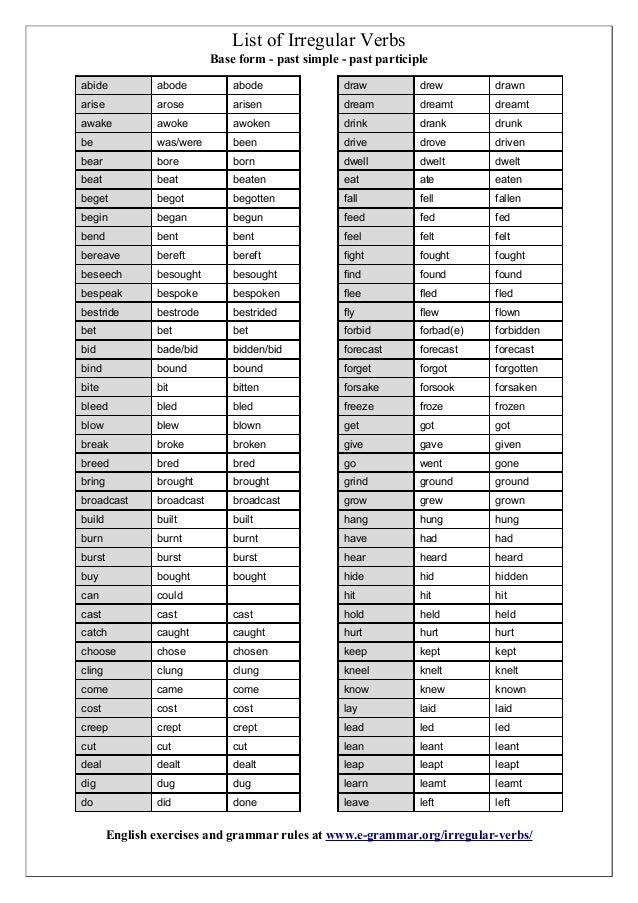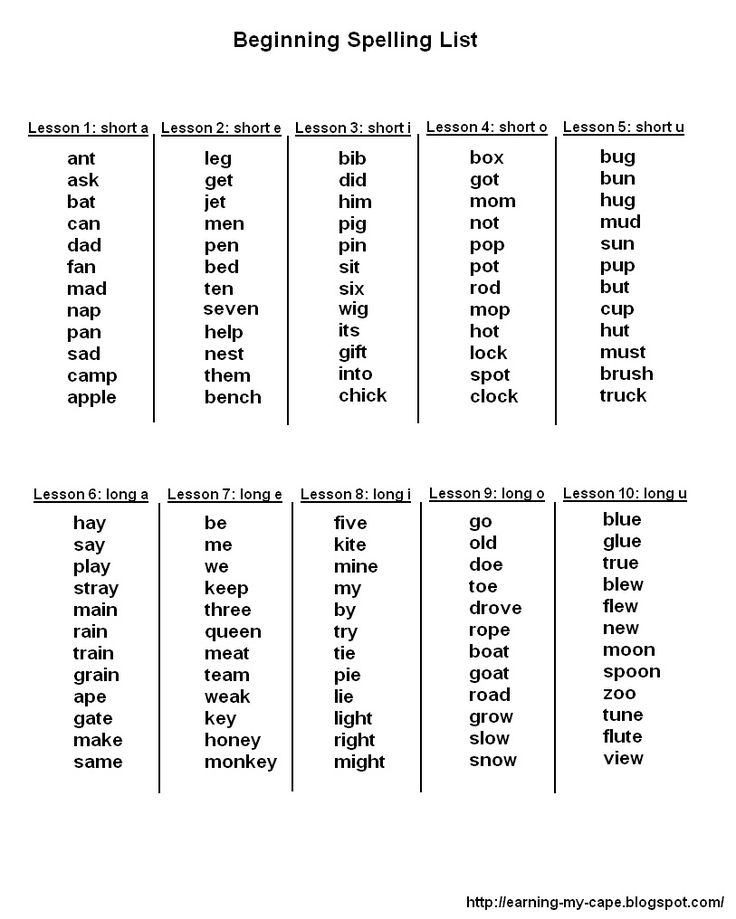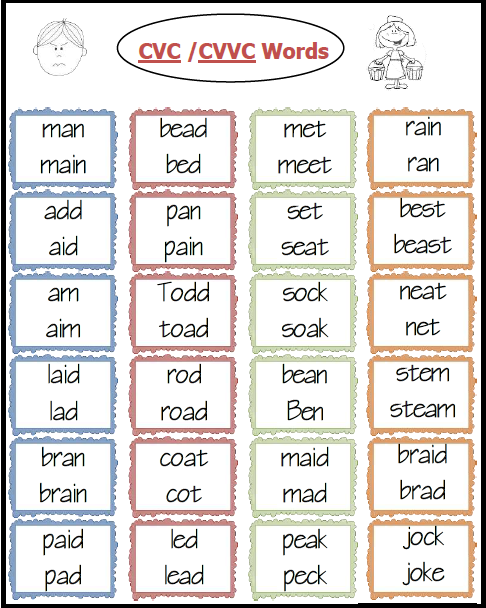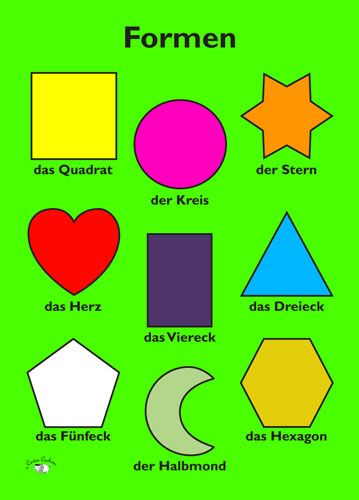Matching word games
Audio Word Match
About this Game
Free Activity
The standards correlation for this activity is coming soon!
Audio Word Match is a traditional memory match game that increases familiarity with terms by allowing students to match words they both see and hear read aloud.
Try Audio Word Match
with a sample word list!
- K-2ndSight Words
- K-2ndShort "o" Words
- 3rd-5thScience Words
- 3rd-5thWord Family "-ight"
Note: Although this activity is designed for the grade levels above, it can also be used as a remediation or enrichment activity at any grade level with an appropriate word list.
Create your own word lists and more with Premium Membership
Learn More
- Foundational Skills
- Fluency
- Spelling
What? Early readers may have trouble reading text quickly and accurately. More...Less
A lack of reading fluency and word recognition can affect a student’s ability to comprehend text. Fluency is a key component of building literacy and students should engage in fluency and word recognition practice.
When? Fluency is a skill that is built over time. More...Less
Students must familiarize themselves with phonetic patterns and words in order to become fluent readers. There are some words that do not follow a pattern and students need to recognize them by sight. Kindergarten students’ reading often sounds slow and choppy with little expression, as most are focusing on decoding words. As students develop word recognition and word automaticity, they become more fluent readers. This allows students to focus on comprehension because cognitive energy is no longer focused on decoding.
How to teach: Students can independently build word recognition and fluency in the classroom. Audio Word Match can be used during their literacy block in a word study center.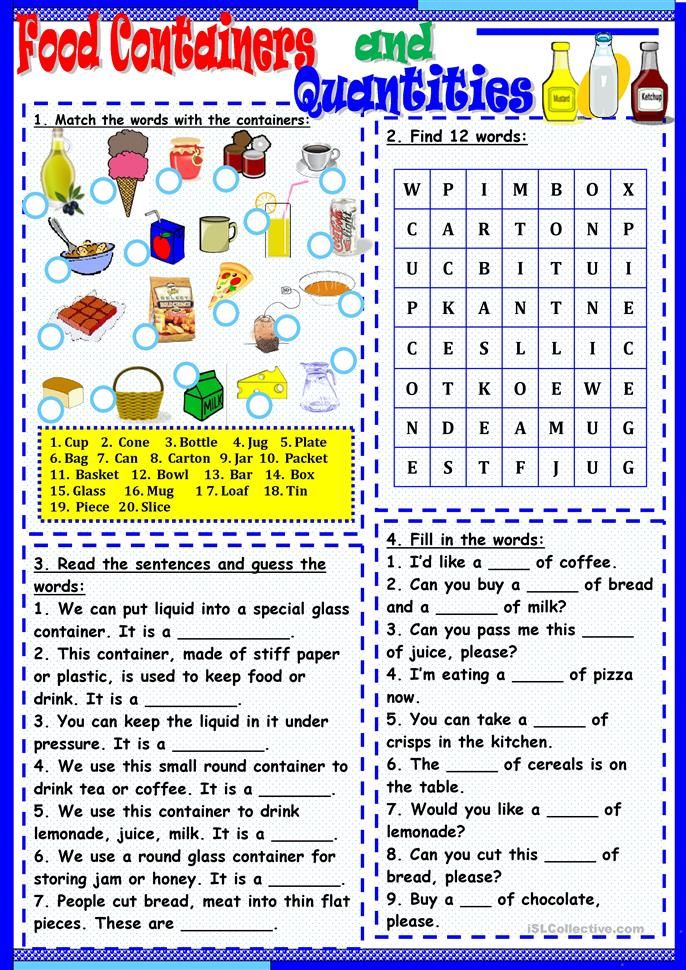 The activity can also be part of weekly spelling practice and homework.
The activity can also be part of weekly spelling practice and homework.
Play to learn: Audio Word Match is similar to the classic memory match game. More...Less
Students flip a card, hear the spelling or vocabulary word read to them, and try to find the card that matches. Students receive immediate feedback when cards are a match. When all words are matched, the game records the attempts and elapsed time that students take to match the words.
Teaching Tip: The audio component of Audio Word Match is great for both early readers and experienced readers because it supports pronunciation as well as visual recognition of the words. More...Less
It is also an engaging way for English Language Learners (ELLs) to become familiar with the language. In addition, teachers can use Audio Word Match to challenge students to complete a task in a particular time frame. A timed activity can help build fluency and is motivating! This is a great learning activity to build automaticity for students who are learning their sight words.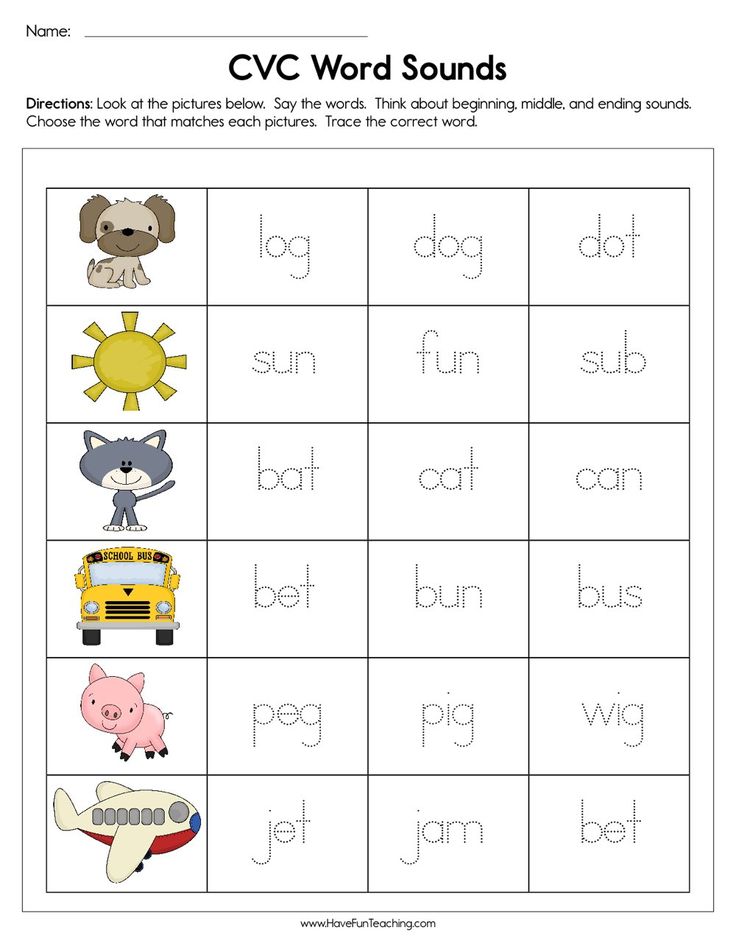
See all activities!
URI Kids: Matching Word Games
Objective:
To help students work with the vocabulary introduced in the unit. To introduce them to using the glossary.
Materials:
You will need the glossary to the unit or a dictionary for each student or small group.
The Lesson:
Below is a word-matching puzzle with words taken from the glossary. Students could do this as homework or in class with a partner, in small groups, or individually.
Words for the matching puzzle:
- altar
- enlightenment
- Brahman
- disciple
- baptism
- Sabbath
- Bar or Bat Mitzvah
- Koran
- Atman
- mosque
- doctrine
- Bible
- idol
- atonement
- Jihad
- deity
- nirvana
- meditation
- Brahman
- church
- prophet
- worship
- monotheism
- Diaspora
- exile
- tenet
- sect
- Guru
- polytheism
- Messiah
Definitions:
- unwilling absence from your home, whether for religious or political reasons.
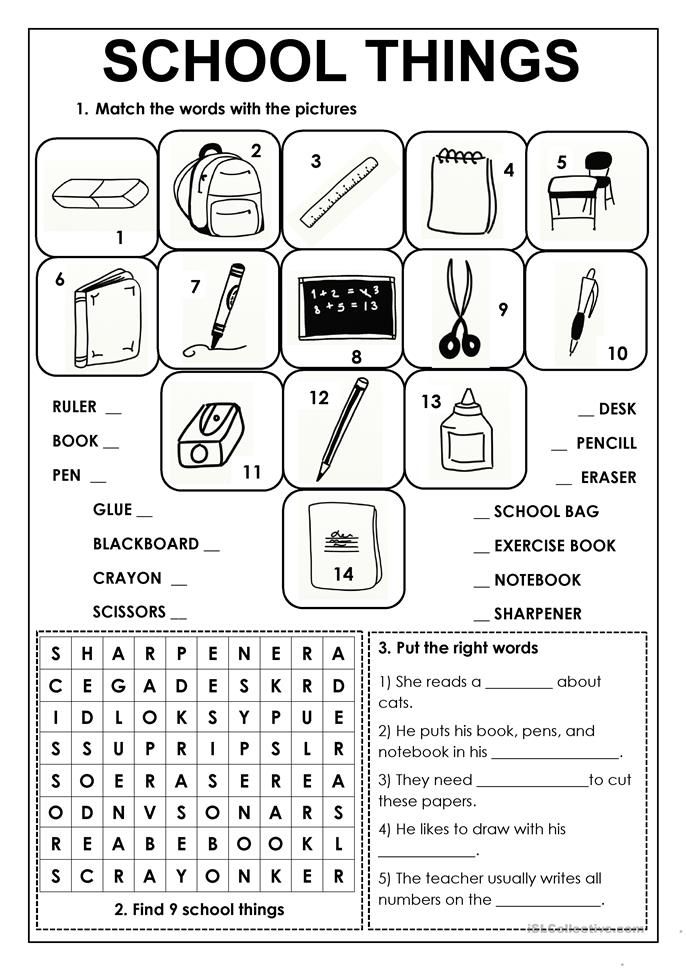
- reconciliation with God. The word is usually used in the context of Yom Kippur, or the Day of Atonement. In this situation, atonement means "forgiveness", and the reconciliation with God is a result of being forgiven and forgiving others.
- a set of fundamental beliefs.
- to treat someone or something as divine or to show respect by praying and devotion.
- a Hindu God, considered the protector of the world (can also be called Brahman)
- another name for God or other sacred beings.
- someone treated as a savior of a country, a religion, or a group of people.
- a part of a religious group with beliefs and practices of its own.
- the spreading out of Jews all over the world following capture.
- a follower of a particular religion or leader.
- teachings about beliefs.
- a building for worship, especially in Christianity
- A designated location in a place of worship or home for sacred things (offerings to God) to be kept on display.
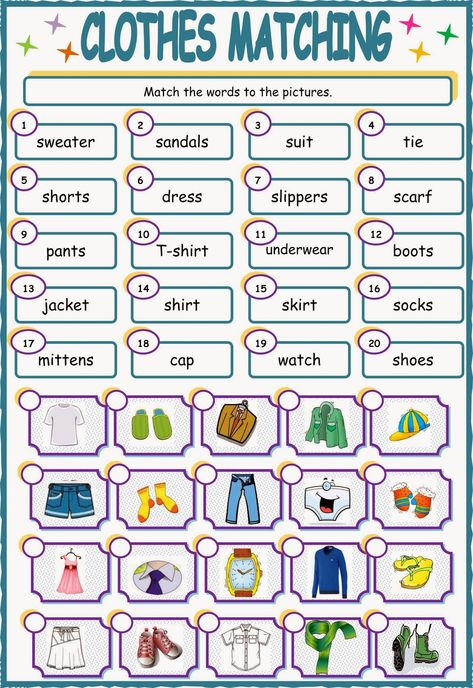
- the sacred book of Christianity.
- generally, to clarify information. In some Asian religions, enlightenment is the highest level of understanding and clarification.
- a ceremony in which a person is put into water to symbolize being pure. In Christianity, this is a major step in being accepted into the religion.
- the belief in more than one God.
- in Hinduism, the soul
- In Islam, the struggle to live a good life.
- In Judaism, the rite of passage into adulthood. Translated, it means "Son or Daughter of the Covenant". There is a ceremony when the boy or girl reads from the Torah for the first time.
- the belief that there is one God.
- In Hinduism or Sikhism, a religious leader or guide.
- a person who speaks for God on earth.
- a symbol or picture that is believed to have sacred powers. In some religions, they are prohibited. In others, they are integral to the religion.
- a building in which Muslims worship.

- the holy book of Islam.
- emptying the mind of thoughts, or concentration on just one thing.
- In Hinduism, Buddhism, and Jainism, the attainment of enlightenment and, therefore, release from the cycle of birth and rebirth.
- a day of rest. In some religions, it is Sunday, others are Saturday, and still others are Friday. Historically, Wednesday was also used.
Follow-up/Assessment:
As a follow-up, students could make their own matching puzzle or other word game. You will be able to correct the matching worksheet, or students could trade to correct them.
Back to Kids Activities Back to URI Kids
Word game for traveling with kids: 15 best options
In the summer we are always going somewhere. To the cottage by car, on vacation by train or plane. If you have children with you, there must certainly be games at the ready that you can play right without getting out of your chair.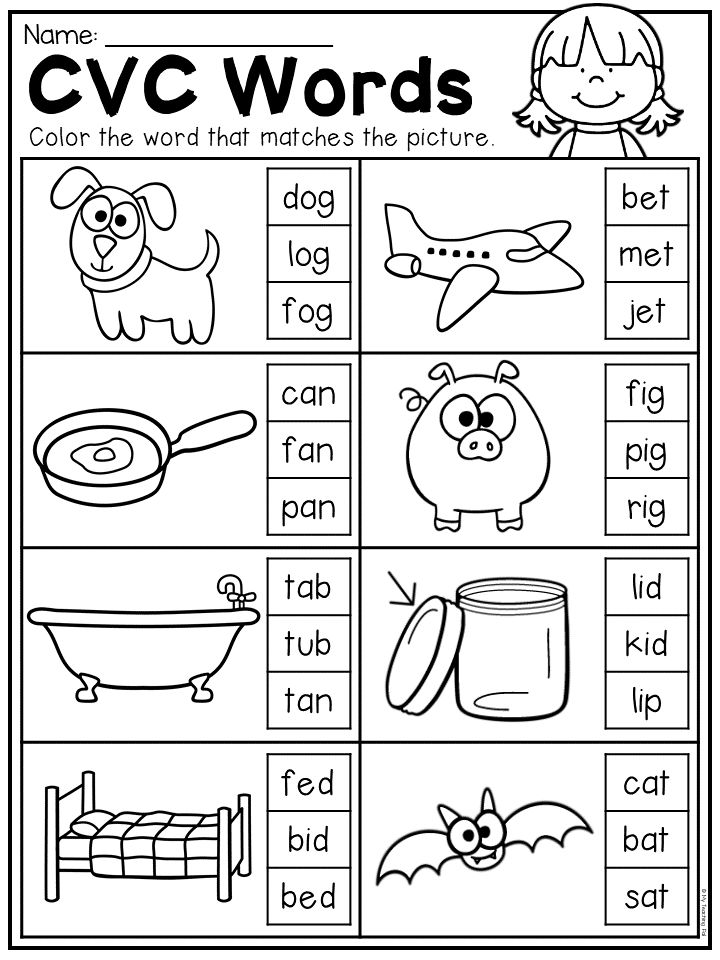 How about word games? How much do you know?
How about word games? How much do you know?
Tatyana Kolobova
1. "Twins" (Doublets)
It is said that the game D oublets was invented by Lewis Carroll, the author of Alice in Wonderland. It is not difficult to play it, besides, this game perfectly trains the skills of recognizing vowels and consonants. nine0003
Rules: select a word (from three to five letters) and change only one letter in it. For example: t umba - r umba, m uka - r eka. Then we change the letter in the second word again, it turns out: t umba - r umba - z umba (dance), r uka - m ukamu r a. Next, we try to extend the chain. Whoever has the longer one wins!
We complicate: we take words of 6-8 letters and play by the same rules. nine0003
2.
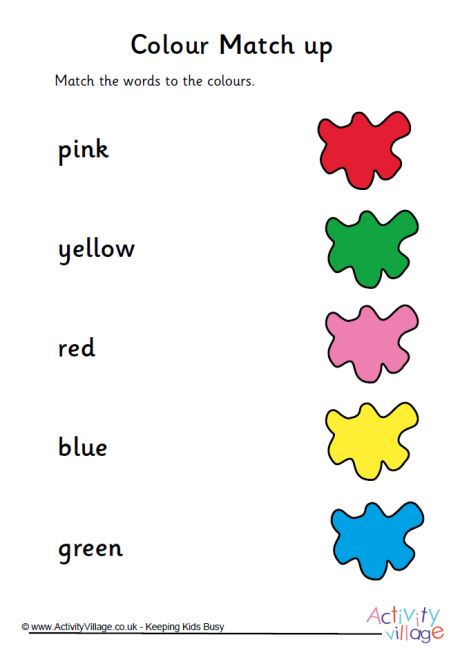 Cities
Cities Everyone seems to know this game. What could be easier? But options are possible.
Rules : the first player gasses the city, the next player must choose the name of the city starting with the last letter of the previous one: Moscow and - A shkhabad. The downside of this game is that cities with the letter A will run out pretty soon. In this case, you can switch to the game Cities and Countries or Cities and Rivers . By the way, you can also play with an atlas in your hands, because children do not know so many geographical names. And with the atlas it is convenient, informative and useful! nine0003
3 Hidden word
The hidden word is the beginning of an exciting game that never ends.
Rule: take a word and come up with a cipher for it: for each letter of the chosen word there should be one sentence, and the sentences must be connected in meaning.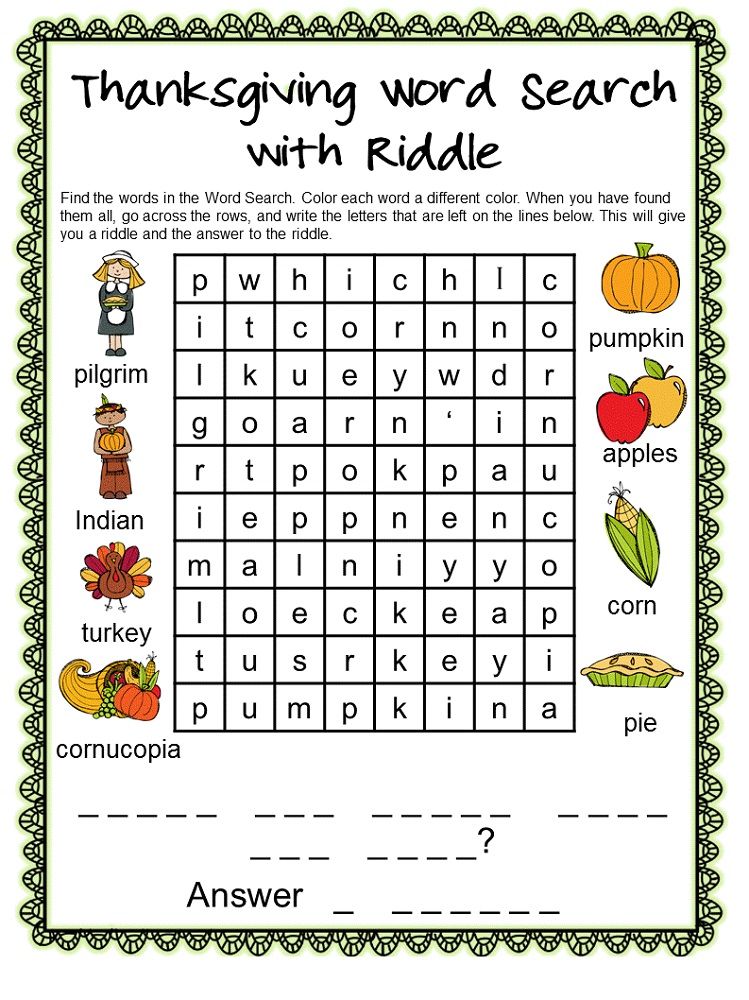 You can play in teams or each for yourself, the one whose cipher will be the most logical in meaning wins.
You can play in teams or each for yourself, the one whose cipher will be the most logical in meaning wins.
For example, choose the word "Potato". The cipher could be:
K Angty A Stronavt P ASPOSS T Umanny O ven Sh to Tummosphere A TOMPHERS
CONSUMENT TEDERAL TENTER OF THE CREARY AND SOMETHING OF THE COMPLEMENT OF THE COMPLEMENT. Sometimes the cipher texts turn out to be very funny, but in any case it is interesting to play!
4. Spy encryption
Come up with your own version of the letter cipher and write a secret message. Give the "key" of the cipher to the other players and offer to quickly decipher your message. The “key” can be, for example, as follows: each letter corresponds to the next letter of the alphabet in order: A=B, B=C, and so on. The word "hello" in this case will look like this: RSKGEU.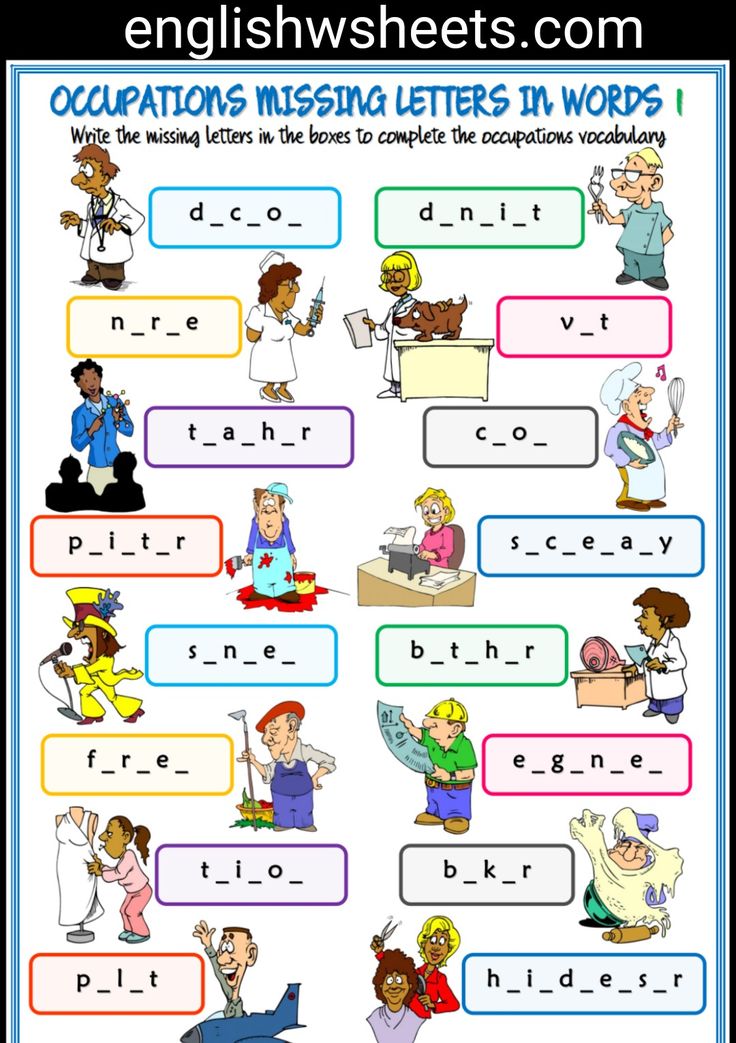 nine0003
nine0003
5. Guess who and what?
Depending on the complexity of the hidden word, the game can be suitable for any age.
Rules: the host thinks of a word. If you play "Guess it?", it can be a historical character, a fairy-tale hero, a mythical character, a cartoon or movie hero, one of the people everyone knows (family member, classmate). If you play "Guess who?", then you agree in advance what the hidden word refers to (a household item, an animal, a natural phenomenon, or something else). Next, the participants in the game ask leading questions to which the leader can only answer “yes” or “no”. The player who guesses the word first wins. nine0003
6. Who am I?
Variation on the theme of the game "Guess who and what?"
Rules: Each player writes a word on a self-adhesive piece of paper that can mean an object, phenomenon, person, character of a fairy tale, movie or cartoon, and sticks the piece of paper on the neighbor's forehead.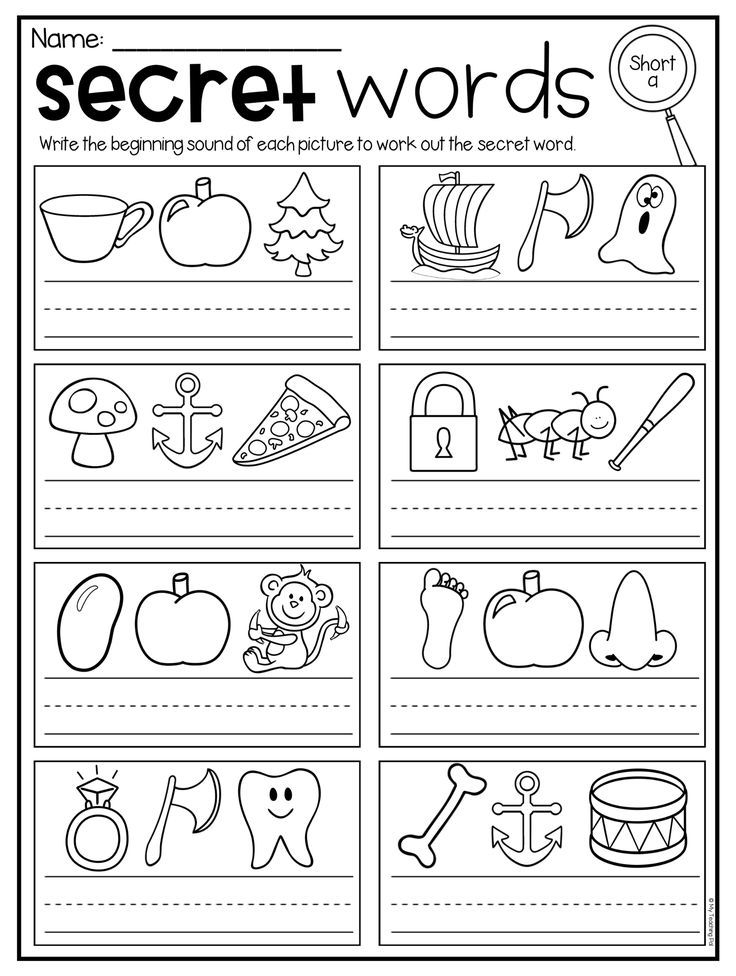 Thus, the word is seen by all participants in the game, except for the one who has this word on his forehead. Each player, in turn, can ask those around him any questions about himself, the answer to which can only be “yes” and “no”. The winner of the game is the one who discovers "who am I" first. The game continues until all players have guessed themselves. nine0003
Thus, the word is seen by all participants in the game, except for the one who has this word on his forehead. Each player, in turn, can ask those around him any questions about himself, the answer to which can only be “yes” and “no”. The winner of the game is the one who discovers "who am I" first. The game continues until all players have guessed themselves. nine0003
7. Crocodile
Good old game for a fun company of children and adults.
Rules : Players are divided into two or more teams. The host chooses (or the players themselves nominate) one candidate from the team, to whom, in secret, the host tells the word, which he must demonstrate to his team in any way. Pantomime, antics and jumping, waving arms and any grimaces are allowed. It is not allowed to pronounce and even articulate the hidden word without sound, write, draw, pronounce consonant words. The players themselves decide how much time is given for an explanation, usually 1 minute.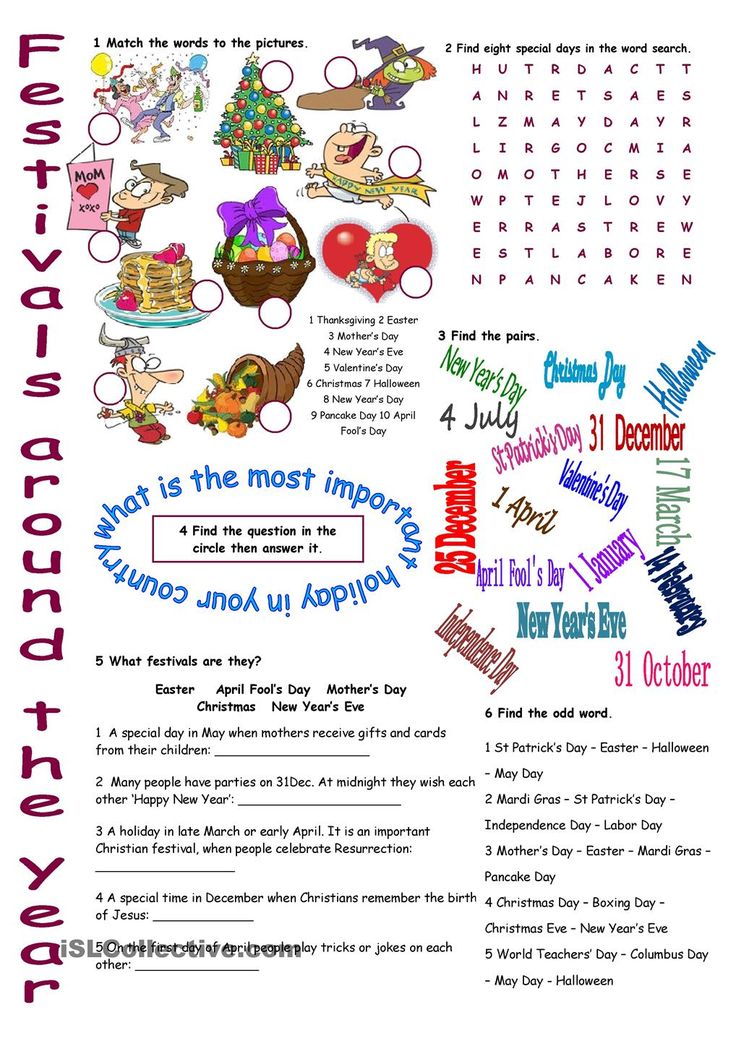 nine0003
nine0003
The older the players, the more difficult the leader thinks of a word. How would you, for example, depict the word inflation?
8. Snowball
Great memory training game. Counselors in children's camps often use it to enable the guys to get to know each other and remember the names of everyone in the squad.
Rules : In clockwise order, everyone starts giving their names. When all the names have been sounded, on the second round, each participant calls his name and the name of the neighbor on the right, for example: Natasha, Slava. The next player says his name and the previous two, and so the snowball of names grows until someone makes a mistake. If the company of players is small (for example, a family is traveling in a car), you can add funny unusual nicknames to patronymic names that everyone comes up with. nine0003
9. Diagonal
Game with pen and notepad.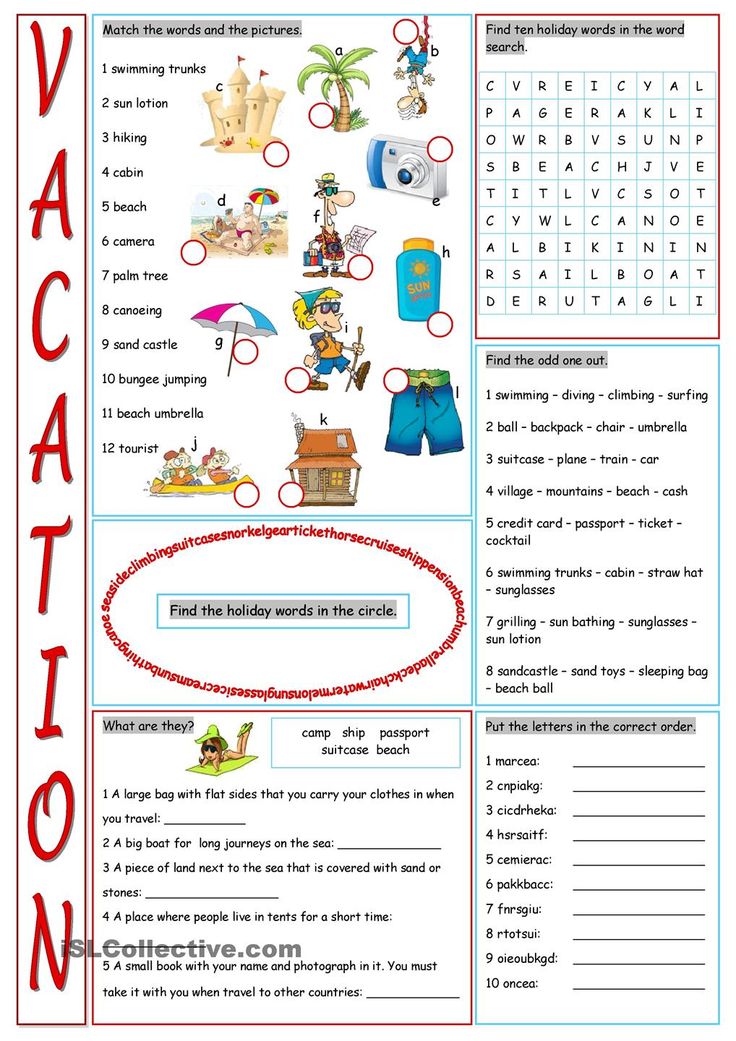 It is possible - for a while.
It is possible - for a while.
Rules: draw a square of 7x7 cells on a notebook sheet or in a notebook. Diagonally write a 7-letter word, for example - CARABAS. Passing the notebook to each other, each participant must enter the word horizontally in such a way that the already existing letter becomes part of it.
10. Bag of associations
This game is good to play with family or close friends or relatives. nine0003
Rules: each player writes on a piece of paper a word with which he has some memory, association or story associated. The papers are folded and placed in a bag. Then each player pulls out their piece of paper, quickly remembers and tells their story associated with this word. It is very unexpected and interesting when there can be completely different responses to the same word. And how nice it is to remember something long forgotten or to hear a story rolled out by a child that you did not even suspect! nine0003
11.
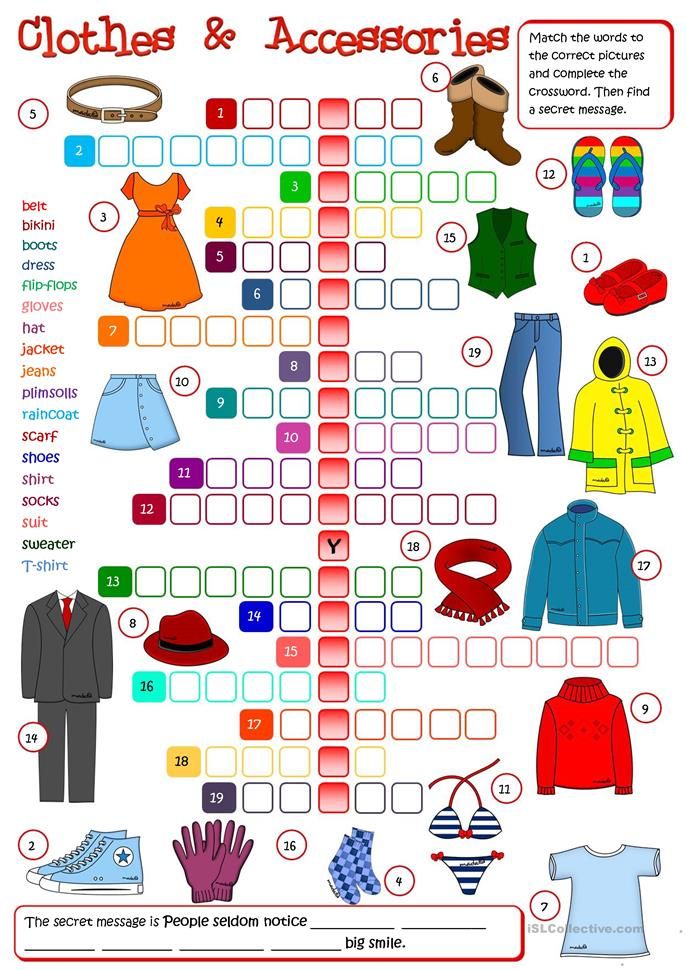 Nonsense
Nonsense Children aged 5-10 adore this game precisely because real nonsense comes out in the process and you can laugh heartily.
Rules: Each participant whispers any made-up word in the neighbor's ear. The host (preferably an adult) asks everyone a question, the answer to which will be the very word spoken in the ear. For example: - What did you eat for lunch today? — Cat. - Where do you live? - In car.
The next leader is the one whose answer turned out to be closest to reality - that is, NOT nonsense .
12. Edible-non-edible
An attention and reaction game for toddlers and younger teens.
Rule : do the guys stand up or converge in a circle, the leader holds a small ball in his hands and throws it selectively by the players? Saying the word at the same time. The “edible” player must catch, the “inedible” should be discarded.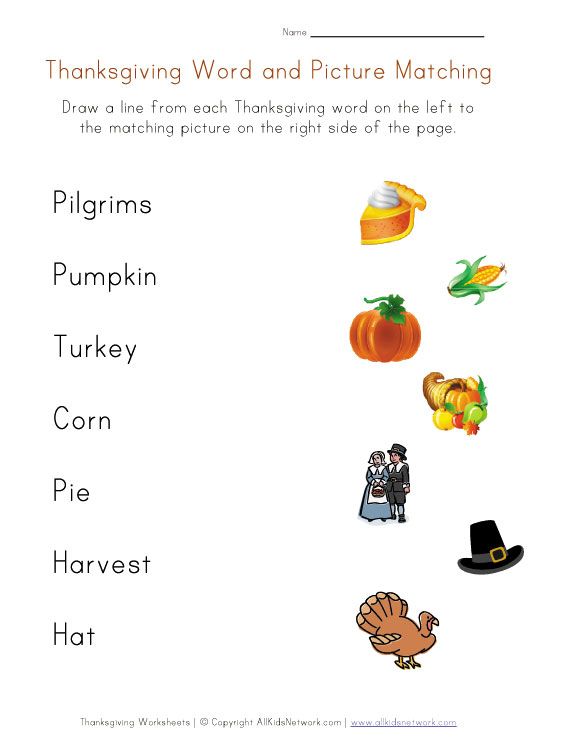 There are many variations of this game. For example, about animals: "Flies, crawls or swims." We agreed that we catch everyone who flies, which means that there is no need to “catch” the rest. You can play different objects in the same way, classifying them according to some attribute. nine0003
There are many variations of this game. For example, about animals: "Flies, crawls or swims." We agreed that we catch everyone who flies, which means that there is no need to “catch” the rest. You can play different objects in the same way, classifying them according to some attribute. nine0003
13. Contact
A very gambling game in which, if you play with children, it is very easy to forget yourself and start pulling the blanket over yourself, preventing the children from understanding what's what.
Rules: the host thinks of a word and tells the rest of the players only the first letter. For example, this word is "zebra". Each of the players comes up with his own word with the letter Z called by the leader and tries to explain it to others using gestures and pantomime (without words!), what exactly he was thinking, without naming it. If one of the players understood what the word was intended by the one who explains, he says "There is a contact!" and both (the one who explained and the one who responded) start counting down aloud from 10, and then each say their own word at the same time.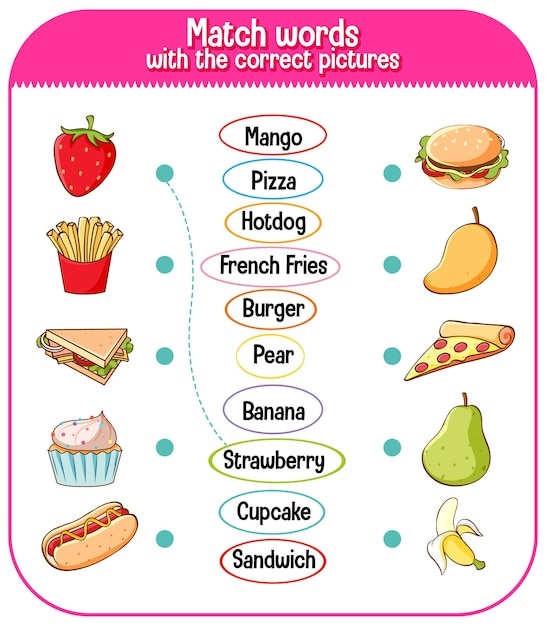 Matched - the host calls the players the second letter in his word and the game continues, only now the players need to invent and explain the word with the initial letters Z and E already set. In case the word does not match, the players continue the game. nine0003
Matched - the host calls the players the second letter in his word and the game continues, only now the players need to invent and explain the word with the initial letters Z and E already set. In case the word does not match, the players continue the game. nine0003
14. The pile is small
A useful game for developing imagination. It is very good for children who have difficulty with presentations and essays. But - alas - it is not suitable for those who have not yet learned to read.
Rules: All players take turns throwing words that come to their mind - any, not just nouns. The facilitator writes them down on a piece of paper in a chaotic manner, trying to fill the entire sheet, while leaving “air” between the words. Then each of the players take turns picking up a piece of paper and connecting 5-6 words with a line, which can become the basis of a sentence, invent and voice it. The next player chooses his 5 words and the game continues until the last player has no words left for a coherent sentence.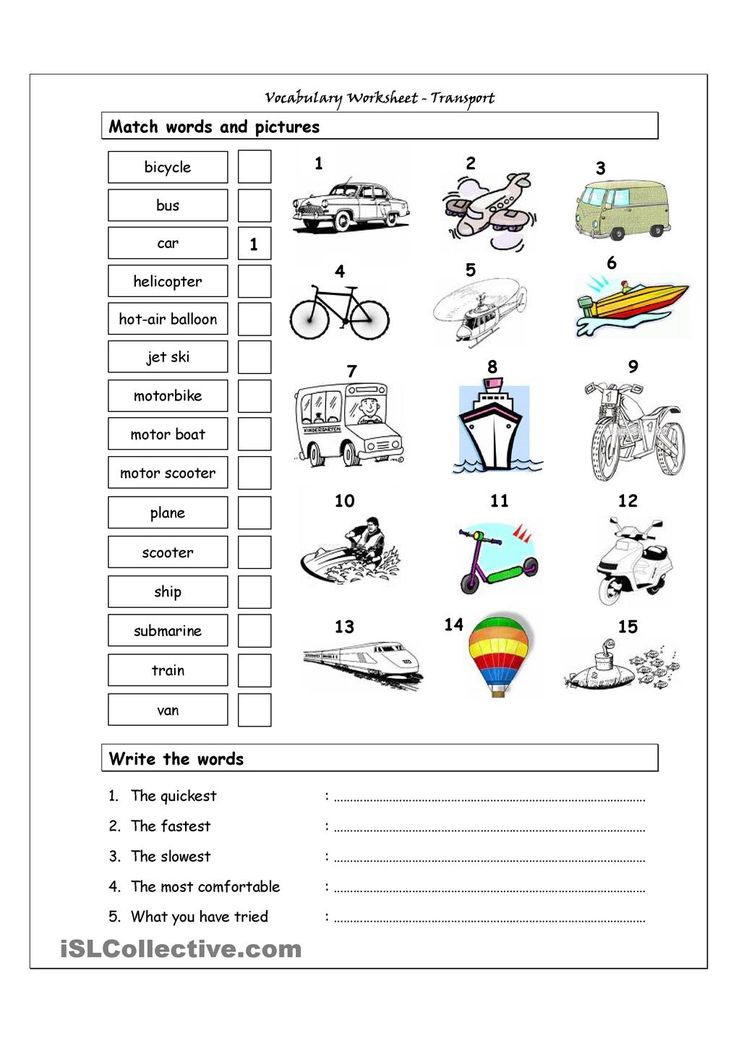 True, by the end of the game, everyone has pumped their writing skills so well that the sentence is even made up of the remnants of words. nine0003
True, by the end of the game, everyone has pumped their writing skills so well that the sentence is even made up of the remnants of words. nine0003
15. Antipodes
Only when children enter the 4th grade will they learn what synonyms, antonyms and homonyms are. Why not practice on vacation in recognizing these couples?
Rules: the host calls the word, the players must name antonyms (or synonyms - as you agree) in a circle. The one who could not pick up the word and on whom the chain is broken is eliminated from the game.
Word games • Arzamas
You have Javascript disabled. Please change your browser settings. nine0003
Children's room ArzamasMaterialsMaterials
Arzamas for classes with schoolchildren! A selection of materials for teachers and parents
Everything you can do in an online lesson or just for fun
Cartoons are festival winners.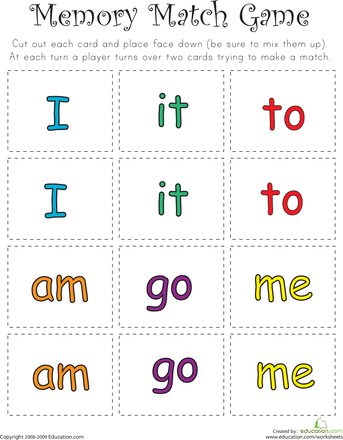 Part 2
Part 2
Fairy tales, parables, experiments and absurdity
Guide to Yasnaya Polyana
Leo Tolstoy's favorite bench, greenhouse, stable and other places of the museum-estate of the writer that are worth seeing with children
Oberiut children's poems
Kharms, Vvedensky, Zabolotsky and Vladimirov about cats, tigers, fishermen and a boy named Petya
Migrants: how to fight for your rights with the help of music
Hip-hop, carnival and other non-obvious talking drums ways
Old records: fairy tales of the peoples of the world
We listen and analyze Japanese, Italian, Scandinavian and Russian fairy tales
Video: the ISS commander asks a scientist about space
Lecture at an altitude of 400 kilometers
How to make a movie
Horror, comedy and melodrama at home
The most unusual animation techniques
VR, cartoons of sunbeams, jelly and spices
Play the percussion instruments of the world and a drum, and gather your orchestra
How to put on a performance
Shadow theater, reading and other options for a home performance for children
Soviet puzzles
Solve children's puzzles 1920-70s
22 cartoons for the little ones
What to watch if you are under six
From "Wild Dog Dingo" to "Timur and his team"
What you need to know about the main Soviet books for children and teenagers
Guide to Children's Poetry of the 20th Century
From Agnia Barto to Mikhail Yasnov: Children's Poems in Russian
10 Artists' Books
Tracing paper pages are Milanese fog, and binding is the border between reality and fantasy
How to choose a modern children's book
"Like Pippi, only about love": explaining new books through old ones
Word games
"Hat", "telegrams", "MPS" and other old and new games
Games from classic books
What the heroes of the works of Nabokov, Lindgren and Milne play
Plasticine animation: the Russian school
From Plasticine Crow to Plasticine Sausage
Cartoons - winners of festivals
Brave Mom, My Strange Grandpa, A Very Lonely Rooster and others
Non-fiction for children
How the heart of a whale beats, what's inside the rocket and who plays the didgeridoo - 60 books about the world around
Guide to foreign popular music
200 artists, 20 genres and 1000 songs that will help you understand the music of the 1950s-2000s
Cartoons based on poems
Poems by Chukovsky, Kharms, Gippius and Yasnov in Russian animation
Home games
Shadow theater, crafts and paper puppets from children's books and magazines of the 19th–20th centuries
Books for the little ones
Modern literature from 0 to 5: read, look at, learn
Puppet animation: Russian school 9003
Crow in Love, Devil No.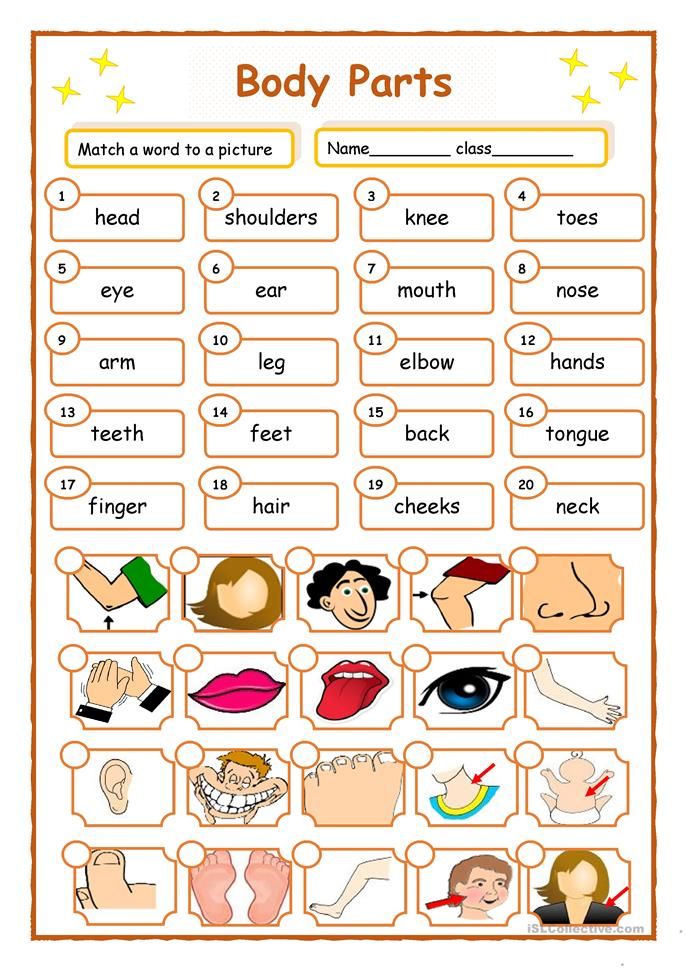 13, Lyolya and Minka and other old and new cartoons
13, Lyolya and Minka and other old and new cartoons
Smart coloring books
Museums and libraries offer to paint their collections
Reprints and reprints of children's books
Favorite fairy tales, stories and magazines of the last century, which can be bought again
What can be heard in classical music
Steps on ice, the voice of the cuckoo and the sounds of the night forest in the great compositions of the 18th–20th centuries
Soviet educational cartoons
Archimedes , dinosaurs, Antarctica and space - popular science cartoons in the USSR
Logic problems
Settle the wise men's dispute, make a bird out of a shirt and count the kittens correctly
Modern children's stories
The best short stories about grandmothers, cats, spies and knights
How Russian lullabies work
We explain why a spinning top is scary and why you shouldn't lie down on the edge. Bonus: 5 lullabies of the Naadya group
Musical fairy tales
How Tchaikovsky, Rimsky-Korsakov and Prokofiev work with the plots of children's fairy tales
Armenian School of Animation
The most rebellious cartoons of the Soviet Union
The Dina Goder Cartoon Collection
The Program Director of the Big Cartoon Festival advises what to watch with your child
Cartoons about art
How to tell children about Picasso, Pollock and Tatlin using animation
40 fire and who has a sieve in his nose: riddles from "Chizh", "Hedgehog" and books by Marshak and Chukovsky
Yard games
"Traffic light", "Shtander", "Kolechko" and other games for a large company
Poems that are interesting to learn by heart
What to choose if you were asked to learn a poem about mother, New Year or autumn
Old audio performances for children
Ole Lukoye, Gray Sheika, Cinderella and other interesting Soviet recordings
Cartoons with classical music
How animation works with the music of Tchaikovsky, Verdi and Glass
How children’s rhymes work
“Ene, bene, slave, kvanter, manter, toad”: what does it all mean
"Hat", "telegrams", "MPS" and other games that require almost nothing but company and a desire to have a good time
Author Lev Gankin
Primer “A.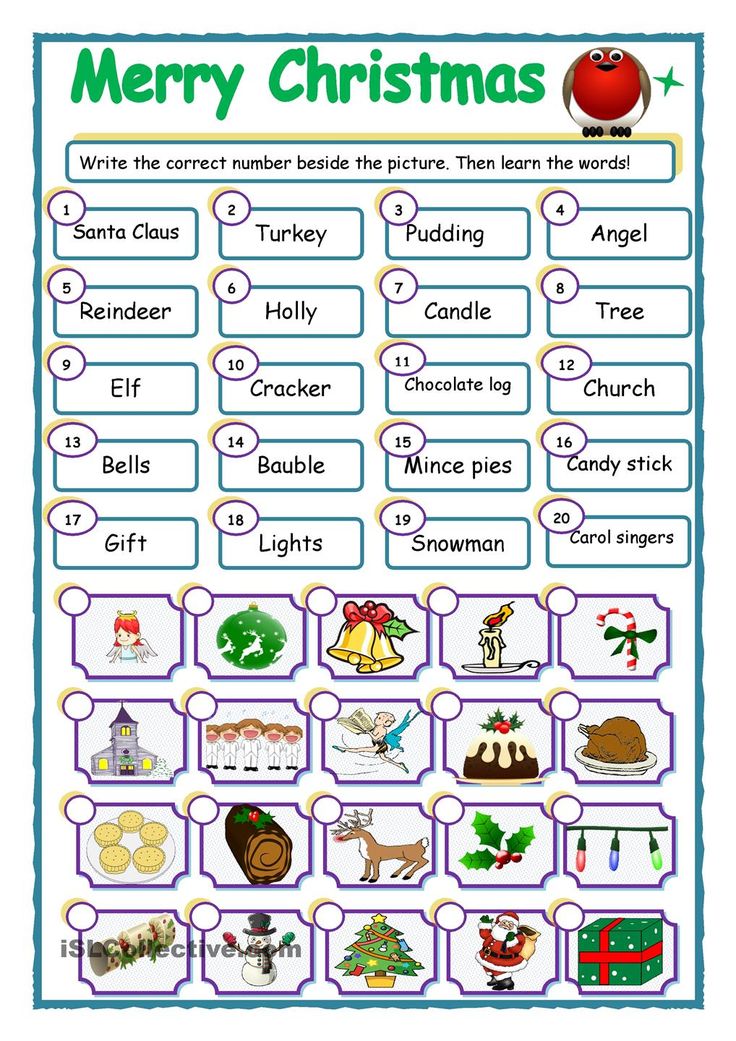 B. C. Trim, alphabet enchanté. Illustrations by Bertal. France, 1861 Wikimedia Commons
B. C. Trim, alphabet enchanté. Illustrations by Bertal. France, 1861 Wikimedia Commons Oral games
Associations
Game for a big company. The host briefly leaves the room, during which time the rest decide which of those present they will guess (this may be the host himself). Upon returning, the player asks the others questions - what flower do you associate this person with, what vehicle, what part of the body, what kitchen utensils, etc. - in order to understand who is hidden. Questions can be very different - this is not limited by anything other than the imagination of the players. Since associations are an individual matter and an exact match may not happen here, it is customary to give the guesser two or three attempts. If the company is small, you can expand the circle of mutual acquaintances who are not present at that moment in the room, although the classic version of "associations" is still a hermetic game. nine0003
Game of P
A game for a company of four people, an interesting variation on the "hat" theme (see below), but does not require any special accessories.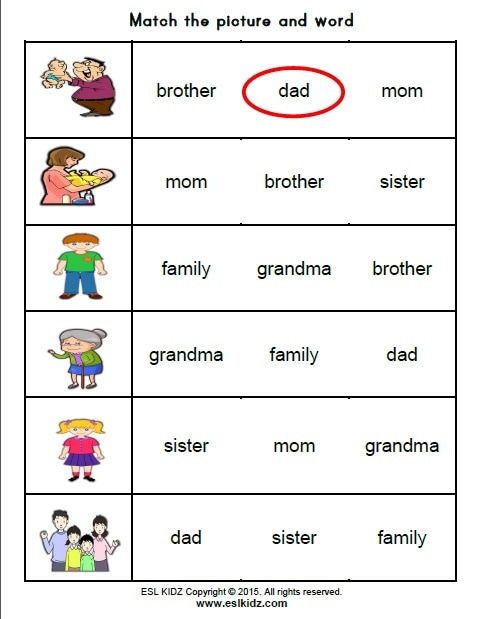 One player guesses a word to another, which he must explain to the others, but he can only use words starting with the letter "p" (any, except for the same root). That is, the word "house" will have to be explained, for example, as follows: "I built - I live." If you couldn’t guess right away, you can throw up additional associations: “building, premises, space, the simplest concept ...” And at the end add, for example, “Perignon” - by association with Dom Perignon champagne. If the guessers are close to winning, then the facilitator will need comments like “about”, “approximately”, “almost right” - or, in the opposite situation: “bad, wait!”. Usually, after the word is guessed, the explainer comes up with a new word and whispers it into the ear of the guesser - he becomes the next leader. nine0003
One player guesses a word to another, which he must explain to the others, but he can only use words starting with the letter "p" (any, except for the same root). That is, the word "house" will have to be explained, for example, as follows: "I built - I live." If you couldn’t guess right away, you can throw up additional associations: “building, premises, space, the simplest concept ...” And at the end add, for example, “Perignon” - by association with Dom Perignon champagne. If the guessers are close to winning, then the facilitator will need comments like “about”, “approximately”, “almost right” - or, in the opposite situation: “bad, wait!”. Usually, after the word is guessed, the explainer comes up with a new word and whispers it into the ear of the guesser - he becomes the next leader. nine0003
Lectures for children on this topic:
Course of lectures for children about the languages of the world
How many languages in the world, how do they differ and how are they similar to each other
Course of lectures for children about strange and new words of the Russian language
Why linguists study jargon, parasitic words and speech errors
Primer "A.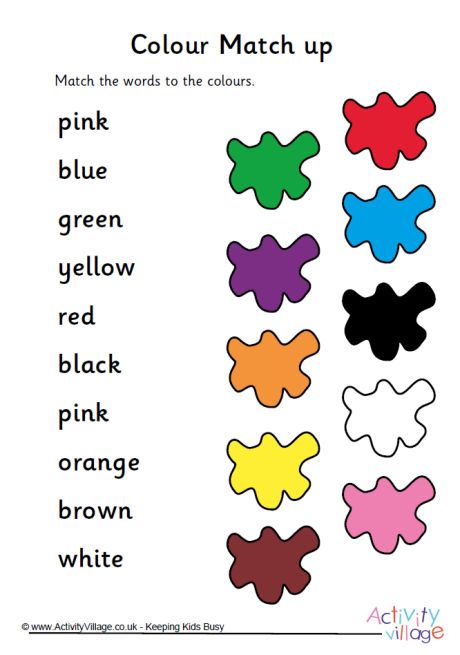 B. C. Trim, alphabet enchanté. Illustrations by Bertal. France, 1861 Wikimedia Commons
B. C. Trim, alphabet enchanté. Illustrations by Bertal. France, 1861 Wikimedia Commons Say the Same Thing
An upbeat and fast-paced game for two, named after a video clip by the inventive rock band OK Go, from which many people learned about it (the musicians even developed a mobile application that helps to play it from a distance, although it is currently unavailable). The meaning of the game is that on the count of one-two-three each of the players pronounces a randomly chosen word. Further, the goal of the players is, with the help of successive associations, to come to a common denominator: for the next time, two or three, both pronounce a word that is somehow connected with the previous two, and so on until the desired coincidence occurs. Suppose the first player said the word "house" and the second player said the word "sausage"; in theory, they can coincide very soon, if on the second move after one-two-three both say "store". But if one says “shop”, and the other says “refrigerator” (why not a sausage house?), then the game can drag on, especially since it’s impossible to repeat - neither the store nor the refrigerator will fit, and you will have to think, say, before "refrigerator" or "IKEI".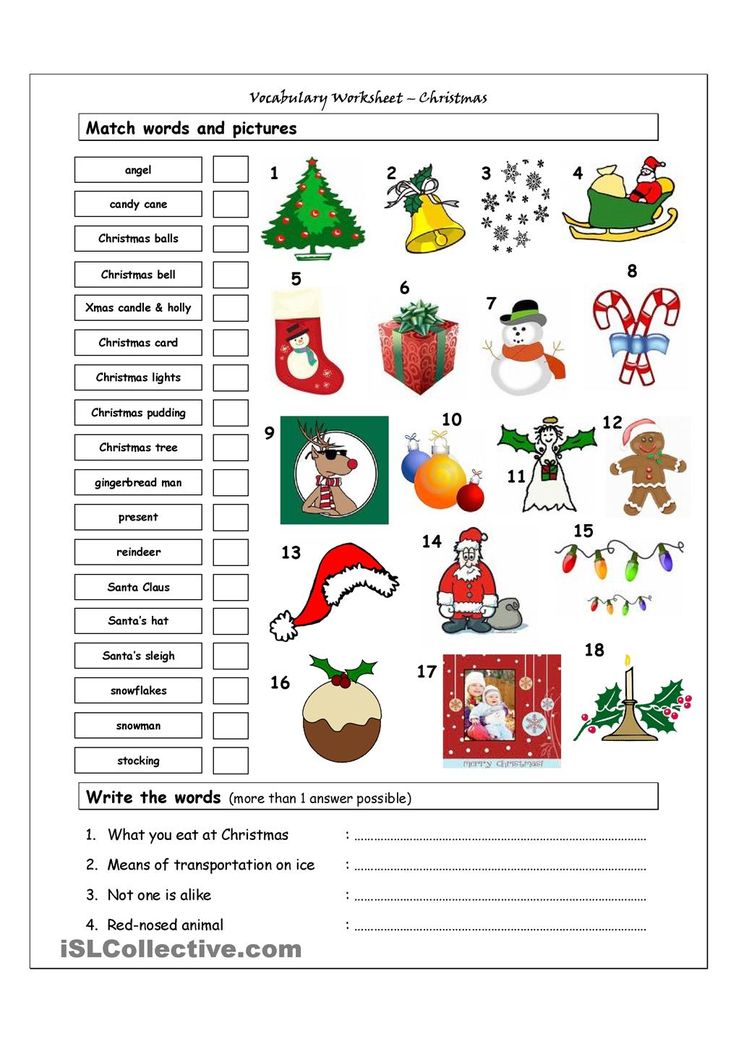 If the original words are far from each other (for example, "curb" and "weightlessness"), then the gameplay becomes completely unpredictable. nine0003
If the original words are far from each other (for example, "curb" and "weightlessness"), then the gameplay becomes completely unpredictable. nine0003
Characters
A game for the company (the ideal number of players is from four to ten), which requires from the participants not only a good imagination, but also, preferably, a little bit of acting skills. As usual, one of the players briefly leaves the room, and while he is gone, the rest come up with a word, the number of letters in which matches the number of participants remaining in the room. Next, the letters are distributed among the players, and a character is invented for each of them (therefore, words that contain "b", "s" or "b" do not fit). Until the word is guessed, the players behave in accordance with the chosen character - the leader's task is to understand exactly what characters his partners portray and restore the hidden word. Imagine, for example, that a company consists of seven people. One leaves, the rest come up with a six-letter word "old man" and distribute roles among themselves: the first, say, will be with indoor, the second - t erpel, the third - a secondary, the fourth - p asylum, the fifth - and mane and sixth - to ovary.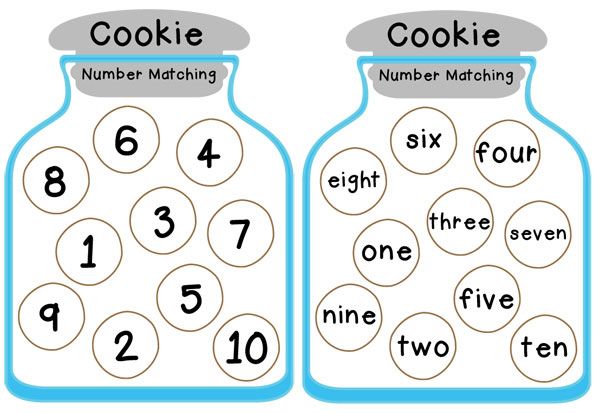 The returning player is greeted by a cacophony of voices - the company "lives" their roles until they are unraveled, and the host asks the players questions that help reveal their image. The only condition is that as soon as the presenter pronounces the correct character - for example, guesses the insidious one - he must admit that his incognito has been revealed and announce the number of his letter (in the word "old man" - the sixth). nine0003 Primer "A. B. C. Trim, alphabet enchanté. Illustrations by Bertal. France, 1861 Wikimedia Commons
The returning player is greeted by a cacophony of voices - the company "lives" their roles until they are unraveled, and the host asks the players questions that help reveal their image. The only condition is that as soon as the presenter pronounces the correct character - for example, guesses the insidious one - he must admit that his incognito has been revealed and announce the number of his letter (in the word "old man" - the sixth). nine0003 Primer "A. B. C. Trim, alphabet enchanté. Illustrations by Bertal. France, 1861 Wikimedia Commons
Recognize the song
A game for a company of four to five people. The host leaves, and the remaining players choose a well-known song and distribute its words among themselves - each word. For example, the song “Let there always be sun” is guessed: one player gets the word “let”, the second - “always”, the third - “will be”, the fourth - “sun”. The host returns and begins to ask questions - the most varied and unexpected: "What is your favorite city?", "Where does the Volga flow?", "What to do and who is to blame?".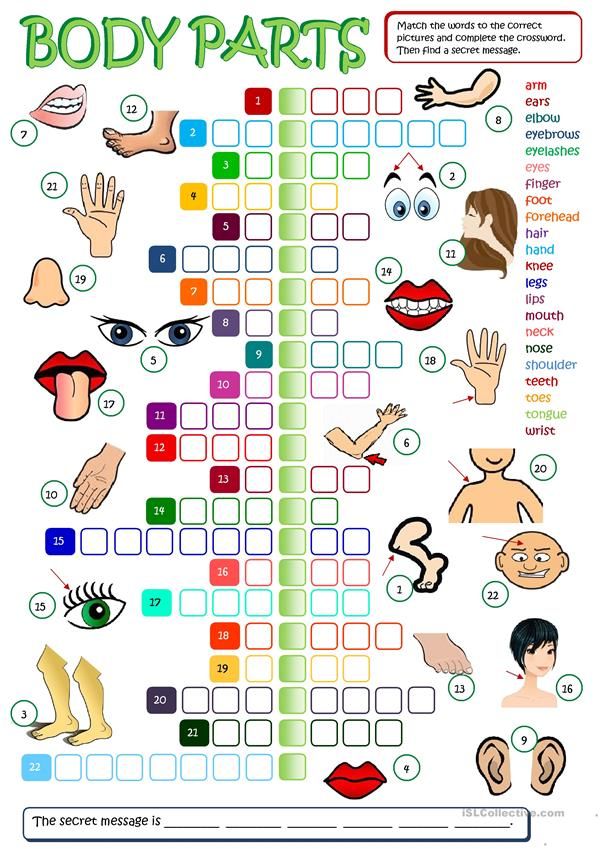 The task of the respondents is to use their own word in the answer and try to do it in such a way that it does not stand out too much; you need to answer quickly and not very extensively, but not necessarily truthfully. Answers to questions in this case can be, for example, “It’s hard for me to choose one city, but let today it will be Rio de Janeiro" or "Volga - into the Caspian, but this does not happen always , every third year it flows into the Black". The presenter must catch which word is superfluous in the answer and guess the song. They often play with lines from poetry rather than from songs.
The task of the respondents is to use their own word in the answer and try to do it in such a way that it does not stand out too much; you need to answer quickly and not very extensively, but not necessarily truthfully. Answers to questions in this case can be, for example, “It’s hard for me to choose one city, but let today it will be Rio de Janeiro" or "Volga - into the Caspian, but this does not happen always , every third year it flows into the Black". The presenter must catch which word is superfluous in the answer and guess the song. They often play with lines from poetry rather than from songs.
Tip
A game for four people divided into pairs (in principle, there can be three or four pairs). The mechanics is extremely simple: the first player from the first pair whispers a word (a common noun in the singular) into the ear of the first player from the second pair, then they must take turns calling their associations with this word (in the same form - common nouns; cognate words cannot be used ).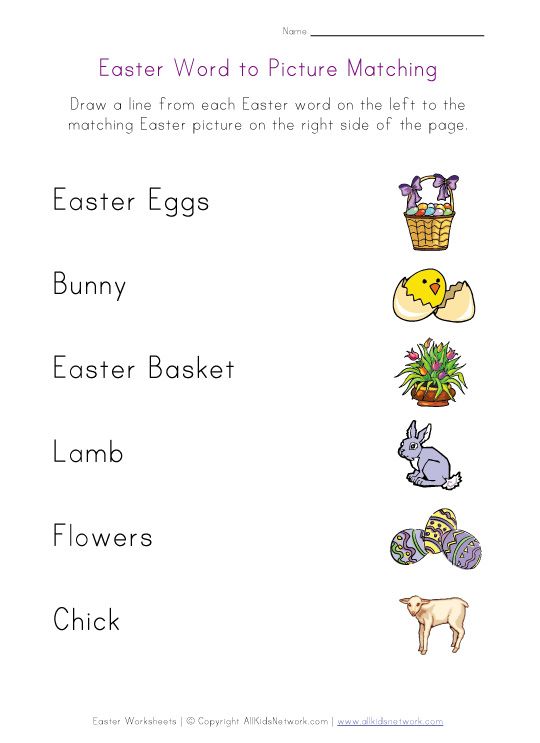 After each association, the teammate of the player who voiced it calls out his word, trying to guess if it was originally guessed - and so on, until the problem is solved by someone; at the same time, all associations already sounded in the game can be used in the future, adding one new one at each move. For example, suppose there are players A and B on one team, and C and D on the other. Player A whispers the word "old man" into player C's ear. Player C says aloud to his partner D: "age". If D immediately answers "old man", then the pair of C and D scores a point, but if he says, for example, "youth", then the move goes to player A, who, using the word "age" suggested by C (but discarding the irrelevant to the case "youth" from D), says to his partner B: "age, man." Now B will probably guess the old man - and his team with A will already earn a point. But if he says "teenager" (thinking that it is about the age when boys turn into men), then C, to whom the move suddenly returned, will say " age, man, eightieth birthday”, and here, probably, “old man” will be guessed.
After each association, the teammate of the player who voiced it calls out his word, trying to guess if it was originally guessed - and so on, until the problem is solved by someone; at the same time, all associations already sounded in the game can be used in the future, adding one new one at each move. For example, suppose there are players A and B on one team, and C and D on the other. Player A whispers the word "old man" into player C's ear. Player C says aloud to his partner D: "age". If D immediately answers "old man", then the pair of C and D scores a point, but if he says, for example, "youth", then the move goes to player A, who, using the word "age" suggested by C (but discarding the irrelevant to the case "youth" from D), says to his partner B: "age, man." Now B will probably guess the old man - and his team with A will already earn a point. But if he says "teenager" (thinking that it is about the age when boys turn into men), then C, to whom the move suddenly returned, will say " age, man, eightieth birthday”, and here, probably, “old man” will be guessed.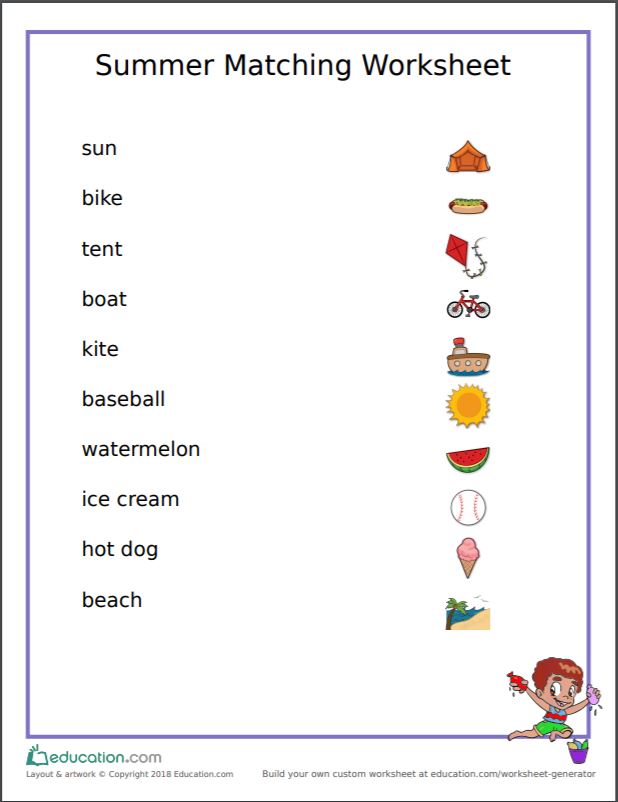 In one of the variants of the game, it is also allowed to "shout": this means that, having suddenly guessed what was meant, the player can shout out the option not on his turn. If he guessed right, his team will get a point, but if he rushed to conclusions, the team will lose a point. They usually play up to five points. nine0003 Primer "A. B. C. Trim, alphabet enchanté. Illustrations by Bertal. France, 1861 Wikimedia Commons
In one of the variants of the game, it is also allowed to "shout": this means that, having suddenly guessed what was meant, the player can shout out the option not on his turn. If he guessed right, his team will get a point, but if he rushed to conclusions, the team will lose a point. They usually play up to five points. nine0003 Primer "A. B. C. Trim, alphabet enchanté. Illustrations by Bertal. France, 1861 Wikimedia Commons
IPU
Game for a big company. Here we are forced to warn readers that, having seen this text in full, you will never be able to drive again - the game is one-time.
Spoiler →
First, the player who gets to drive leaves the room. When he returns, he must find out what MPS means - all that is known in advance is that the bearer of this mysterious abbreviation is present in the room right now. To find out the correct answer, the driver can ask other players questions, the answers to which should be formulated as “yes” or “no”: “Does he have blond hair?”, “Does he have blue eyes?”, “Is this a man?”, “He in jeans?", "Does he have a beard?"; moreover, each question is asked to a specific player, and not to all at once.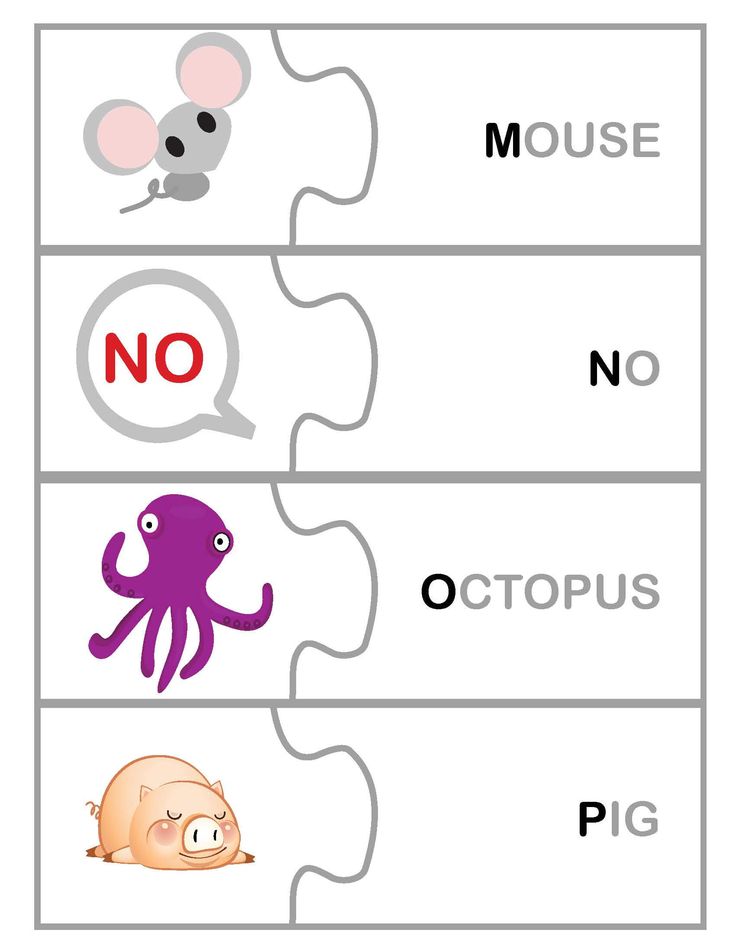 Most likely, it will quickly become clear that there is simply no person in the room who meets all the criteria; Accordingly, the question arises, according to what principle the players give answers. "Opening" this principle will help answer the main question - what is MPS. The Ministry of Railways is not the Ministry of Communications at all, but m oy p right s seated (that is, each player always describes the person sitting to his right). Another option is COP, to then to answered to last (that is, everyone talks about who answered the previous question).
Most likely, it will quickly become clear that there is simply no person in the room who meets all the criteria; Accordingly, the question arises, according to what principle the players give answers. "Opening" this principle will help answer the main question - what is MPS. The Ministry of Railways is not the Ministry of Communications at all, but m oy p right s seated (that is, each player always describes the person sitting to his right). Another option is COP, to then to answered to last (that is, everyone talks about who answered the previous question).
Contact
A simple game that can be played with a group of three or more people. One thinks of a word (noun, common noun, singular) and calls its first letter aloud, the task of the others is to guess the word, remembering other words with this letter, asking questions about them and checking if the presenter guessed.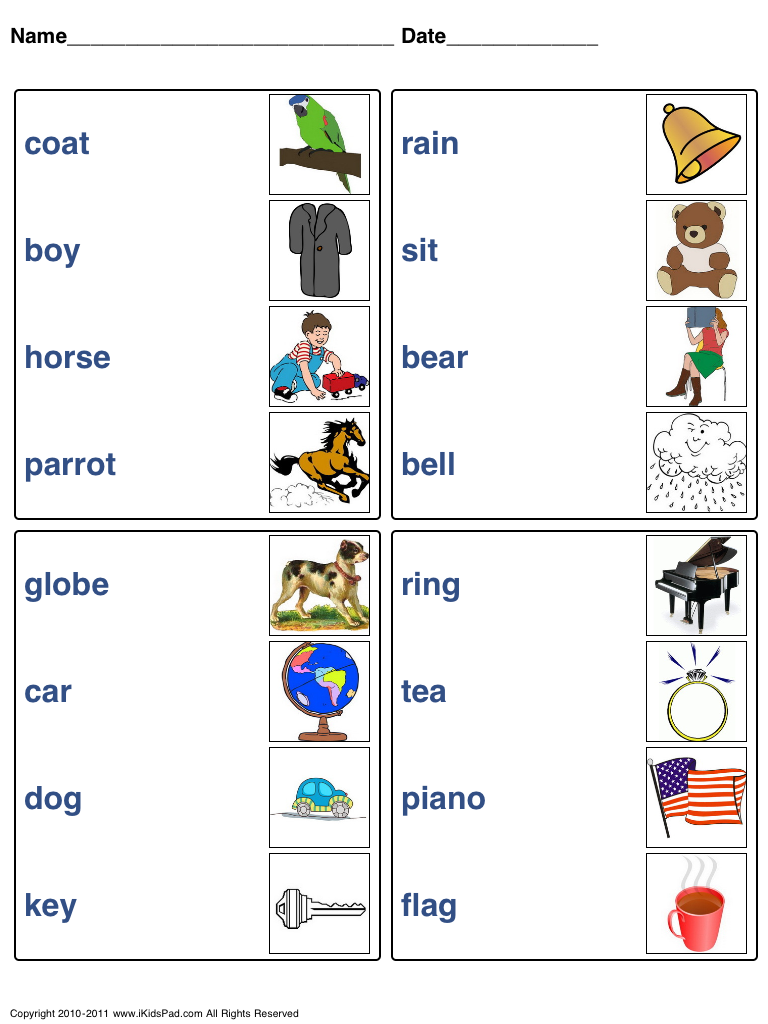 The facilitator's task is not to reveal the next letters in the word to the players for as long as possible. For example, a word with the letter "d" is guessed. One of the players asks the question: “Is this by chance not the place where we live?” This is where the fun begins: the host must figure out as quickly as possible what the player means and say “No, this is not“ house ”” (well, or, if it was a“ house ”, honestly admit it). But in parallel, other players also think the same thing, and if they understand what “house” means before the leader, then they say: “contact” or “there is contact”, and start counting up to ten in chorus (while the count is going on, the presenter still has a chance to escape and guess what it is about!), and then they call the word. If at least two matched, that is, at the expense of ten they said “house” in chorus, the presenter must reveal the next letter, and the new guesser version will already begin with the now known letters “d” + the next one. If it was not possible to beat the host on this question, then the guessers offer a new option.
The facilitator's task is not to reveal the next letters in the word to the players for as long as possible. For example, a word with the letter "d" is guessed. One of the players asks the question: “Is this by chance not the place where we live?” This is where the fun begins: the host must figure out as quickly as possible what the player means and say “No, this is not“ house ”” (well, or, if it was a“ house ”, honestly admit it). But in parallel, other players also think the same thing, and if they understand what “house” means before the leader, then they say: “contact” or “there is contact”, and start counting up to ten in chorus (while the count is going on, the presenter still has a chance to escape and guess what it is about!), and then they call the word. If at least two matched, that is, at the expense of ten they said “house” in chorus, the presenter must reveal the next letter, and the new guesser version will already begin with the now known letters “d” + the next one. If it was not possible to beat the host on this question, then the guessers offer a new option.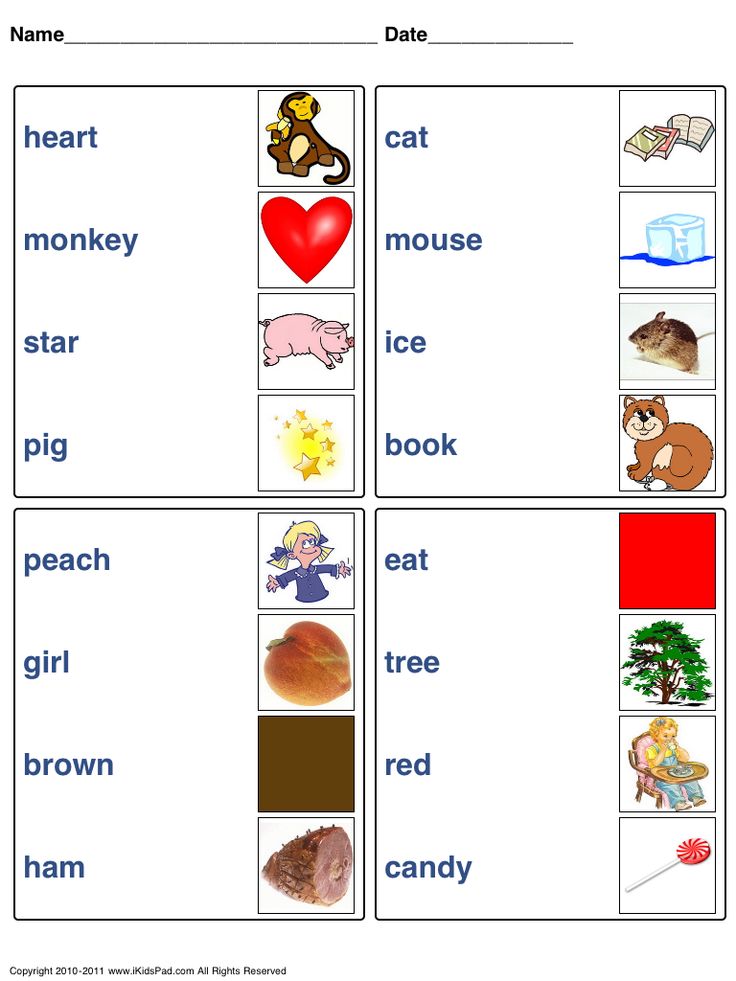 Of course, it makes sense to complicate the definitions, and not ask everything directly - so the question about "home" would sound better like "Is this not where the sun rises?" (with a reference to the famous song "House of the Rising Sun" by The Animals). Usually, the one who eventually gets to the searched word (names it or asks a question leading to victory) becomes the next leader. nine0003 Primer "A. B. C. Trim, alphabet enchanté. Illustrations by Bertal. France, 1861 Wikimedia Commons
Of course, it makes sense to complicate the definitions, and not ask everything directly - so the question about "home" would sound better like "Is this not where the sun rises?" (with a reference to the famous song "House of the Rising Sun" by The Animals). Usually, the one who eventually gets to the searched word (names it or asks a question leading to victory) becomes the next leader. nine0003 Primer "A. B. C. Trim, alphabet enchanté. Illustrations by Bertal. France, 1861 Wikimedia Commons
Writing games
Encyclopedia
Not the fastest, but extremely exciting game for a company of four people - you will need pens, paper and some kind of encyclopedic dictionary (preferably not limited thematically - that is, TSB is better than a conditional "biological encyclopedia"). The host finds a word in the encyclopedia that is unknown to anyone present (here it remains to rely on their honesty - but cheating in this game is uninteresting and unproductive).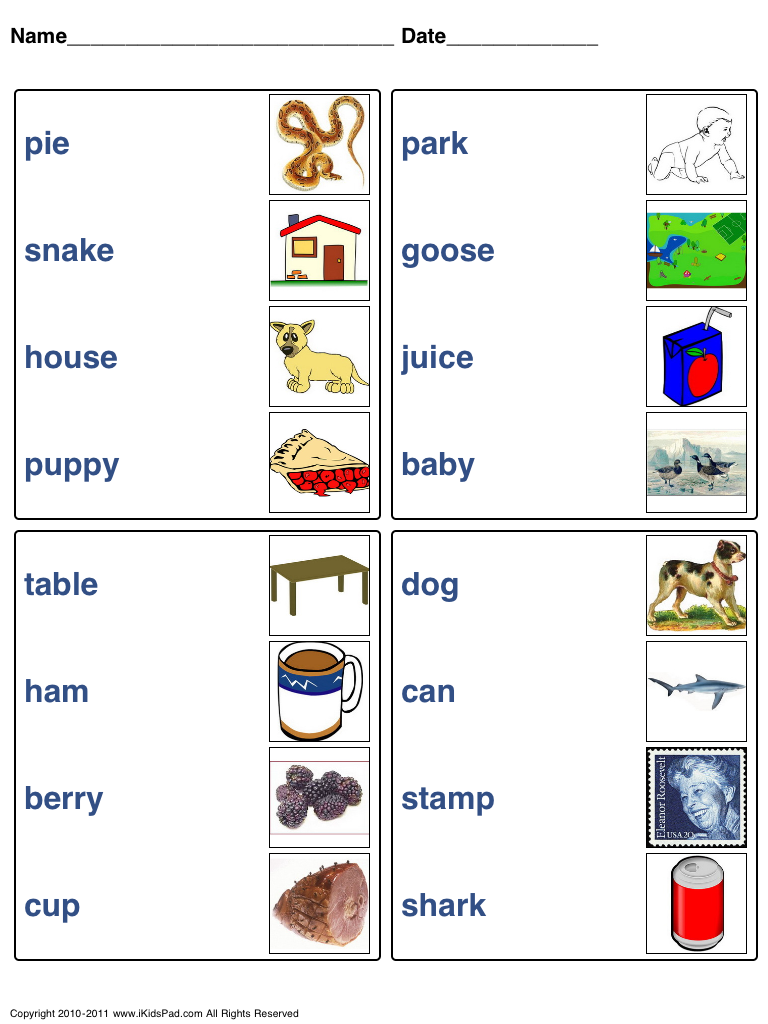 The task of each of the players is to write an encyclopedic definition of this word, inventing its meaning from the head and, if possible, disguising the text as a real small encyclopedic article. The presenter, meanwhile, carefully rewrites the real definition from the encyclopedia. After that, the “articles” are shuffled and read out by the presenter in random order, including the real one, and the players vote for which option seems most convincing to them. In the end, the votes are counted and points are distributed. Any player receives a point for correctly guessing the real definition and one more point for each vote given by other participants to his own version. After that, the sheets are distributed back and a new word is played out - there should be about 6-10 of them in total. You can also play this game in teams: come up with imaginary definitions collectively. The game "poems" is arranged in a similar way - but instead of a compound word, the host selects two lines from some little-known poem in advance and invites the participants to add quatrains.
The task of each of the players is to write an encyclopedic definition of this word, inventing its meaning from the head and, if possible, disguising the text as a real small encyclopedic article. The presenter, meanwhile, carefully rewrites the real definition from the encyclopedia. After that, the “articles” are shuffled and read out by the presenter in random order, including the real one, and the players vote for which option seems most convincing to them. In the end, the votes are counted and points are distributed. Any player receives a point for correctly guessing the real definition and one more point for each vote given by other participants to his own version. After that, the sheets are distributed back and a new word is played out - there should be about 6-10 of them in total. You can also play this game in teams: come up with imaginary definitions collectively. The game "poems" is arranged in a similar way - but instead of a compound word, the host selects two lines from some little-known poem in advance and invites the participants to add quatrains.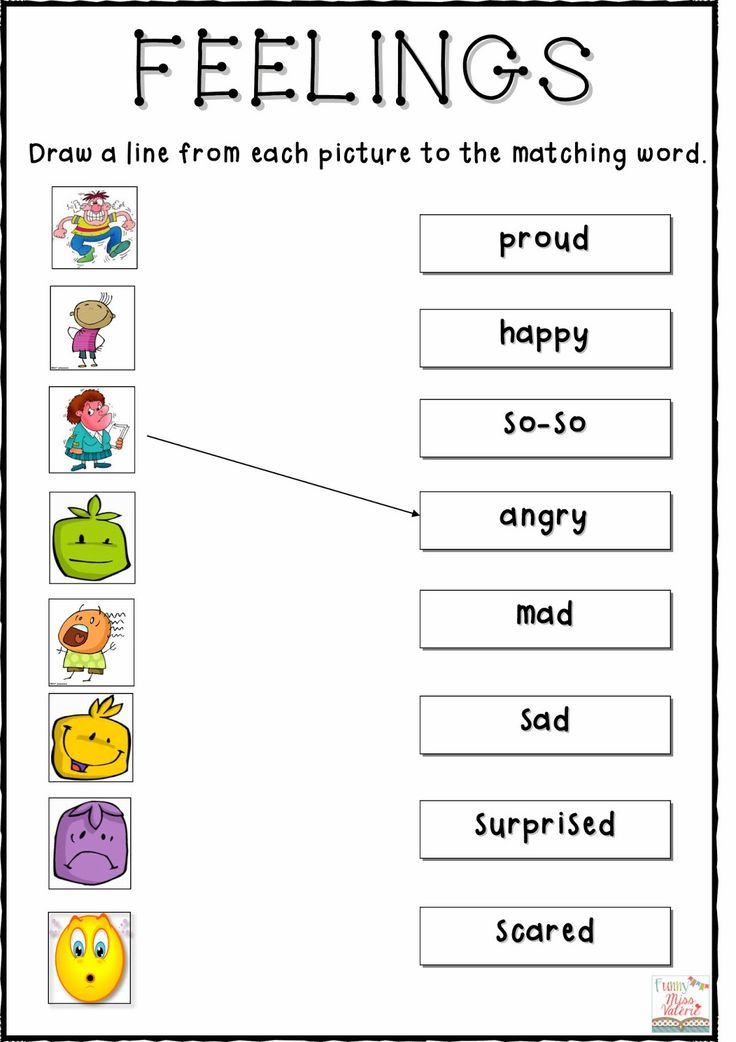 nine0003
nine0003
Game from Inglourious Basterds
A game for a company of any size that many knew before the Quentin Tarantino film, but it does not have a single name. Each player invents a role for his neighbor (usually it is some famous person), writes it on a piece of paper and sticks the piece of paper on his neighbor's forehead: accordingly, everyone sees what role someone has, but does not know who they are. The task of the participants is, with the help of leading questions, the answers to which are formulated as “yes” or “no” (“Am I a historical figure?”, “Am I a cultural figure?”, “Am I a famous athlete?”), to find out who exactly they are. In this form, however, the game exhausts itself rather quickly, so you can come up with completely different themes and instead of famous people play, for example, in professions (including exotic ones - "carousel", "taxidermist"), in film and literary heroes (you can mix them with real celebrities, but it’s better to agree on this in advance), food (one player will be risotto, and the other, say, green cabbage soup) and even just items.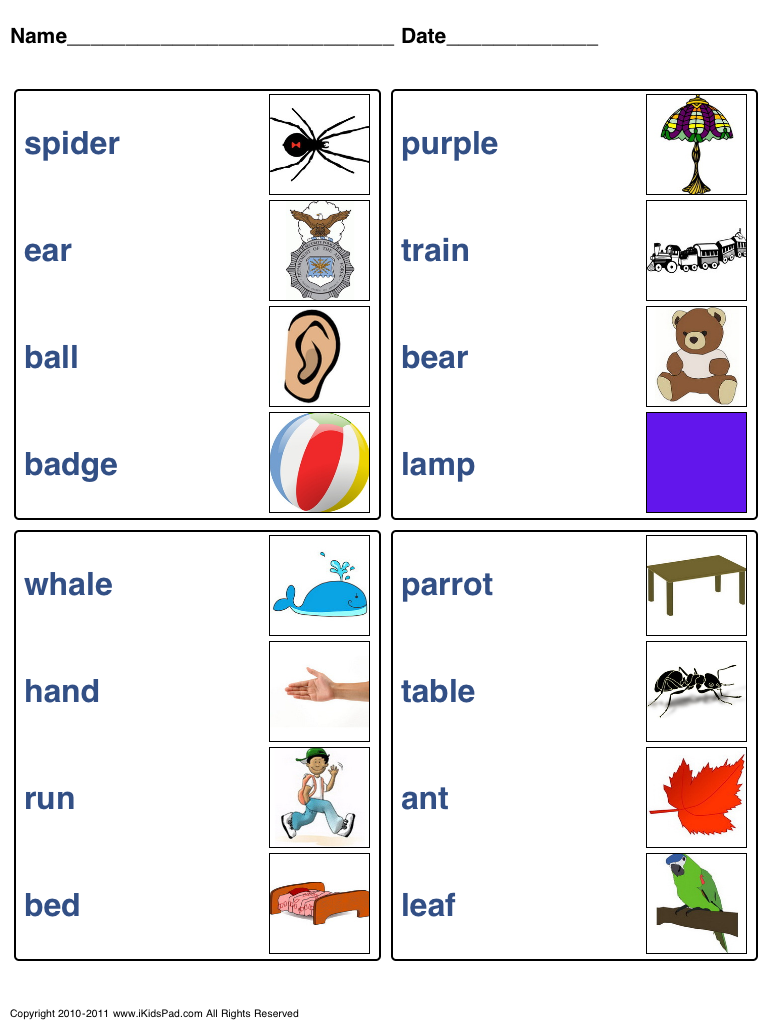 nine0003 Primer "A. B. C. Trim, alphabet enchanté. Illustrations by Bertal. France, 1861 Wikimedia Commons
nine0003 Primer "A. B. C. Trim, alphabet enchanté. Illustrations by Bertal. France, 1861 Wikimedia Commons
Bulls and cows
A game for two: one participant thinks of a word, and it is agreed in advance how many letters should be in it (usually 4-5). The task of the second is to guess this word by naming other four- or five-letter words; if some letters of the named word are in the hidden one, they are called cows, and if they have the same place inside the word, then these are bulls. Let's imagine that the word "eccentric" is conceived. If the guesser says “dot”, then he receives an answer from the second player: “three cows” (that is, the letters “h”, “k” and “a”, which are in both “eccentric” and “dot”, but in different places). If he then says "head of head", he will no longer get three cows, but two cows and one bull - since the letter "a" in both "eccentric" and "head" is in the fourth position. As a result, sooner or later, it is possible to guess the word, and the players can change places: now the first one will guess the word and count the bulls and cows, and the second one will name his options and track the extent to which they coincide with the one guessed.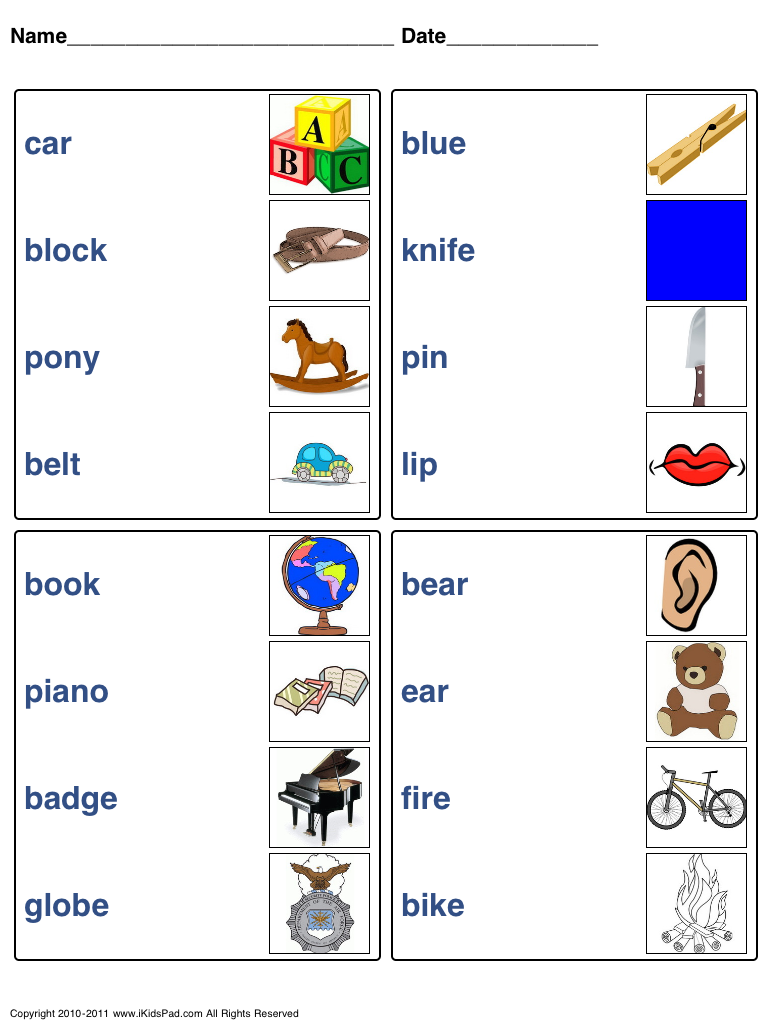 You can also complicate the process by simultaneously guessing your own word and guessing the opponent's word. nine0003
You can also complicate the process by simultaneously guessing your own word and guessing the opponent's word. nine0003
Intellect
Writing game for the company (but you can also play together), consisting of three rounds, each for five minutes. In the first, players randomly type thirteen letters (for example, blindly poking a book page with their finger) and then form words from them, and only long ones - from five letters. In the second round, you need to choose a syllable and remember as many words as possible that begin with it, you can use single-root ones (for example, if the syllable "house" is selected, then the words "house", "domra", "domain", "domain", "brownie", "housewife", etc.). Finally, in the third round, the syllable is taken again, but now you need to remember not ordinary words, but the names of famous people of the past and present in which it appears, and not necessarily at the beginning - that is, both Karamzin and McCartney will fit the syllable "kar" , and, for example, Hamilcar.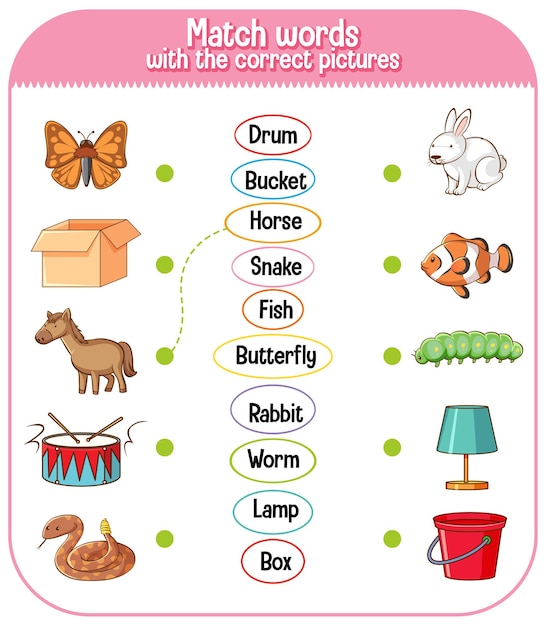 An important detail: since this round provokes the most disputes and scams, game participants can ask each other to prove that this person is really a celebrity, and here you need to remember at least the profession and country. Typical dialogue: "What, you don't know Hamilcar? But this is a Carthaginian commander!” After each round, points are counted: if a particular word is the same for all players, it is simply crossed out, in other cases, players are awarded as many points for it as the opponents could not remember it. In the first round, you can still add points for especially long words. Based on the results of the rounds, it is necessary to determine who took the first, second, third and other places, and add up these places at the end of the game. The goal is to get the smallest number at the output (for example, if you were the winners of all three rounds, then you will get the number 3 - 1 + 1 + 1, and you are the champion; less cannot be purely mathematical). nine0003 Primer "A.
An important detail: since this round provokes the most disputes and scams, game participants can ask each other to prove that this person is really a celebrity, and here you need to remember at least the profession and country. Typical dialogue: "What, you don't know Hamilcar? But this is a Carthaginian commander!” After each round, points are counted: if a particular word is the same for all players, it is simply crossed out, in other cases, players are awarded as many points for it as the opponents could not remember it. In the first round, you can still add points for especially long words. Based on the results of the rounds, it is necessary to determine who took the first, second, third and other places, and add up these places at the end of the game. The goal is to get the smallest number at the output (for example, if you were the winners of all three rounds, then you will get the number 3 - 1 + 1 + 1, and you are the champion; less cannot be purely mathematical). nine0003 Primer "A.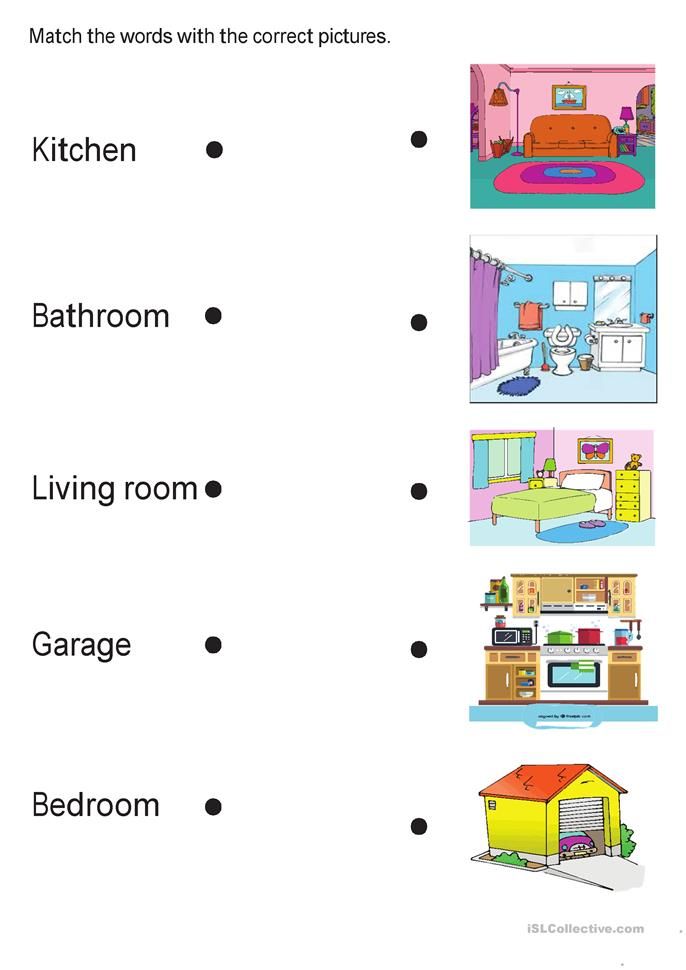 B. C. Trim, alphabet enchanté. Illustrations by Bertal. France, 1861 Wikimedia Commons
B. C. Trim, alphabet enchanté. Illustrations by Bertal. France, 1861 Wikimedia Commons
Frame
A game for any number of people, which was invented by one of the creators of the Kaissa chess program and the author of the anagram search program Alexander Bitman. First, the players choose several consonants - this will be the frame, the skeleton of the word. Then the time is recorded (two or three minutes), and the players begin to “stretch” vowels (as well as “й”, “ь”, “ъ”) onto the frame to make existing words. Consonants can be used in any order, but only once, and vowels can be added in any number. For example, players choose the letters "t", "m", "n" - then the words "fog", "cloak", "mantle", "coin", "darkness", "ataman", "dumbness" and other. The winner is the one who can come up with more words (as usual, these should be common nouns in the singular). The game can be played even with one letter, for example, "l". The words “silt”, “lay”, “yula”, “aloe”, “spruce” are formed around it, and if we agree that the letter can be doubled, “alley” and “lily”.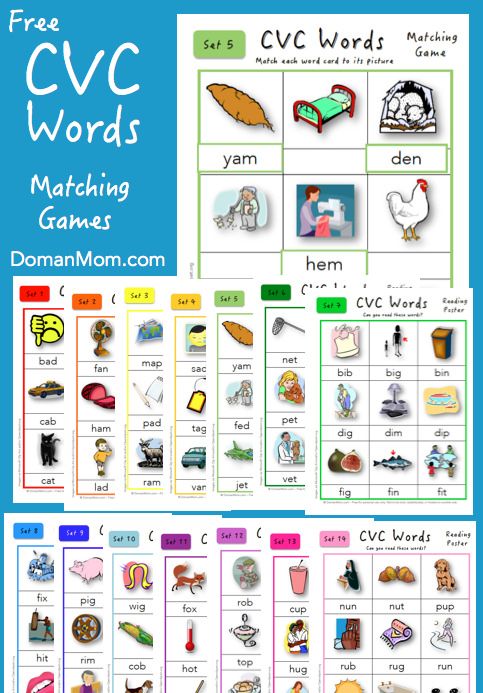 If the standard "framework" is mastered, then the task may be to compose a whole phrase with one consonant: a textbook example from the book by Evgeny Gik - "Bobby, kill the boy and beat the woman at the baobab." nine0003
If the standard "framework" is mastered, then the task may be to compose a whole phrase with one consonant: a textbook example from the book by Evgeny Gik - "Bobby, kill the boy and beat the woman at the baobab." nine0003
Chain of words
Game for any number of players. Many people know it under the name "How to make an elephant out of a fly", and it was invented by the writer and mathematician Lewis Carroll, the author of "Alice". The “chain” is based on metagram words, that is, words that differ by only one letter. The task of the players is to turn one word into another with the least number of intermediate links. For example, let's make a "goat" from a "fox": FOX - LINDE - PAW - KAPA - KARA - KORA - GOAT. It is interesting to give tasks with a plot: so that the “day” turns into “night”, the “river” becomes the “sea”. The well-known chain, where the "elephant" grows out of the "fly", is obtained in 16 moves: FLY - MURA - TURA - TARA - KARA - KARE - CAFE - KAFR - MURDER - KAYUK - HOOK - URIK - LESSON - TERM - DRAIN - STON - ELEPHANT (example of Evgeny Gik).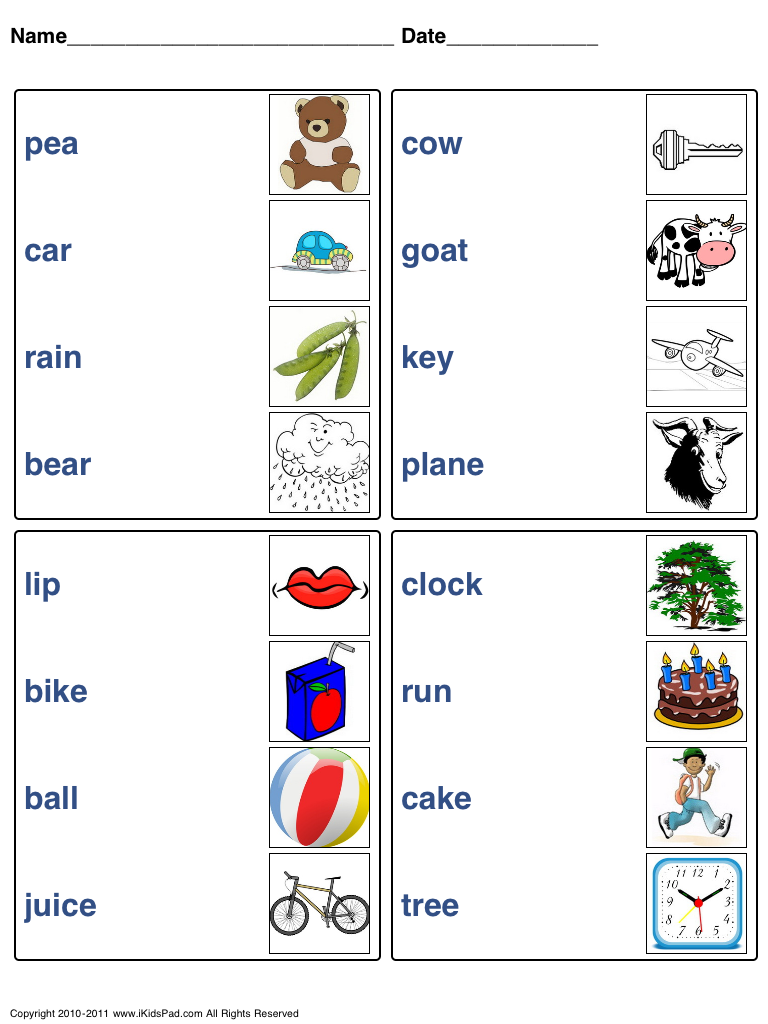 For training, you can compete in the search for metagrams for any word. For example, the word "tone" gives "sleep", "background", "current", "tom", "tan" and so on - whoever scores more options wins. nine0003 Primer "A. B. C. Trim, alphabet enchanté. Illustrations by Bertal. France, 1861 Wikimedia Commons
For training, you can compete in the search for metagrams for any word. For example, the word "tone" gives "sleep", "background", "current", "tom", "tan" and so on - whoever scores more options wins. nine0003 Primer "A. B. C. Trim, alphabet enchanté. Illustrations by Bertal. France, 1861 Wikimedia Commons
Hat
A game for a company of four people, requiring simple equipment: pens, paper and a “hat” (an ordinary plastic bag will do). Sheets of paper need to be torn into small pieces and distributed to the players, the number of pieces depends on how many people are playing: the larger the company, the less for each. Players write words on pieces of paper (one for each piece of paper) and throw them into the "hat". There are also options here - you can play just with words (noun, common noun, singular), or you can play with famous people or literary characters. Then the participants are divided into teams - two or more people each; the task of each - in 20 seconds (or 30, or a minute - the timing can be set at your own choice) to explain to your teammates the largest number of words arbitrarily pulled out of the "hat", without using the same root.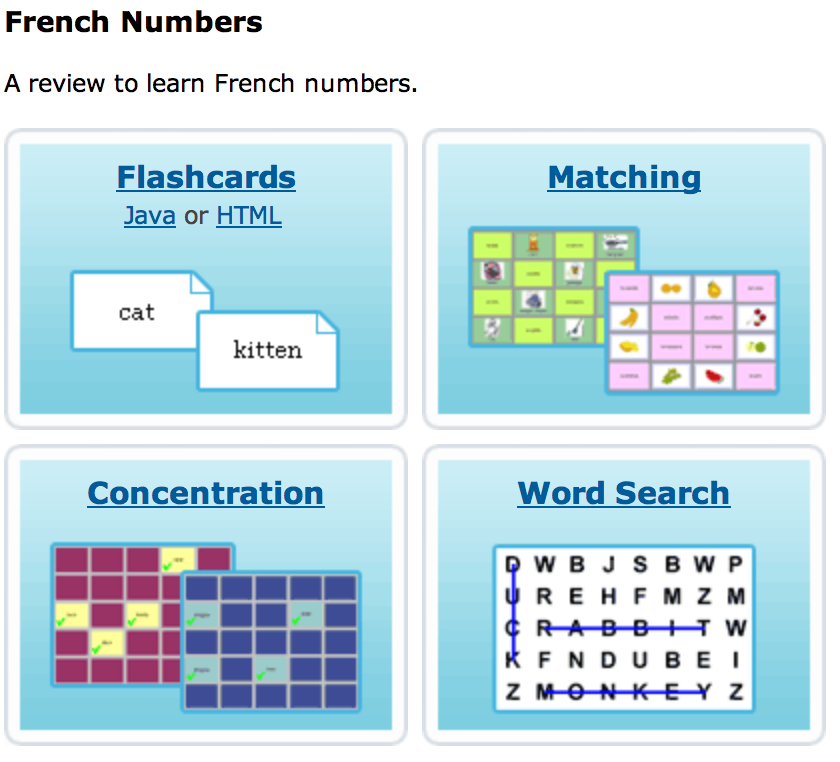 If the driver could not explain a word, it returns to the hat and will be played by the other team. At the end of the game, the words guessed by different representatives of the same team are summed up, their number is counted, and the team that has more pieces of paper is awarded the victory. A popular version of the game: everything is the same, but in the first round the players explain the words (or describe the characters) orally, in the second round they show in pantomime, in the third round they explain the same words in one word. And recently a board game has appeared, where you need not only to explain and show, but also to draw. nine0003
If the driver could not explain a word, it returns to the hat and will be played by the other team. At the end of the game, the words guessed by different representatives of the same team are summed up, their number is counted, and the team that has more pieces of paper is awarded the victory. A popular version of the game: everything is the same, but in the first round the players explain the words (or describe the characters) orally, in the second round they show in pantomime, in the third round they explain the same words in one word. And recently a board game has appeared, where you need not only to explain and show, but also to draw. nine0003
Telegrams
Game for any number of players. The players choose a word, for each letter of which they will need to come up with a part of the telegram - the first letter will be the beginning of the first word, the second - the second, and so on. For example, the word "fork" is selected. Then the following message can become a telegram: “The camel is healed.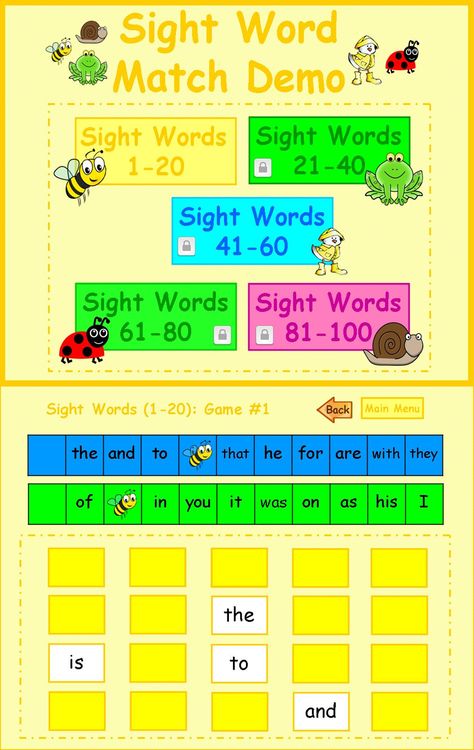 I'm flying a crocodile. Aibolit". Another round of the game is the addition of genres. Each player gets the task to write not one, but several telegrams from the same word - business, congratulatory, romantic (the types of messages are agreed in advance). Telegrams are read aloud, the next word is chosen. nine0003
I'm flying a crocodile. Aibolit". Another round of the game is the addition of genres. Each player gets the task to write not one, but several telegrams from the same word - business, congratulatory, romantic (the types of messages are agreed in advance). Telegrams are read aloud, the next word is chosen. nine0003
even more different games for one or a company
Home games
Shadow theater, crafts and paper dolls from children's books and magazines of the XIX-XX centuries Ring and other games
Games from classic books
What do the heroes of the works of Nabokov, Lindgren and Milne play
A children's course on where games, jokes, horror stories and memes come from and why we need them
Children's room
Special project
Children's room Arzamas
Sources
- Balandin B.
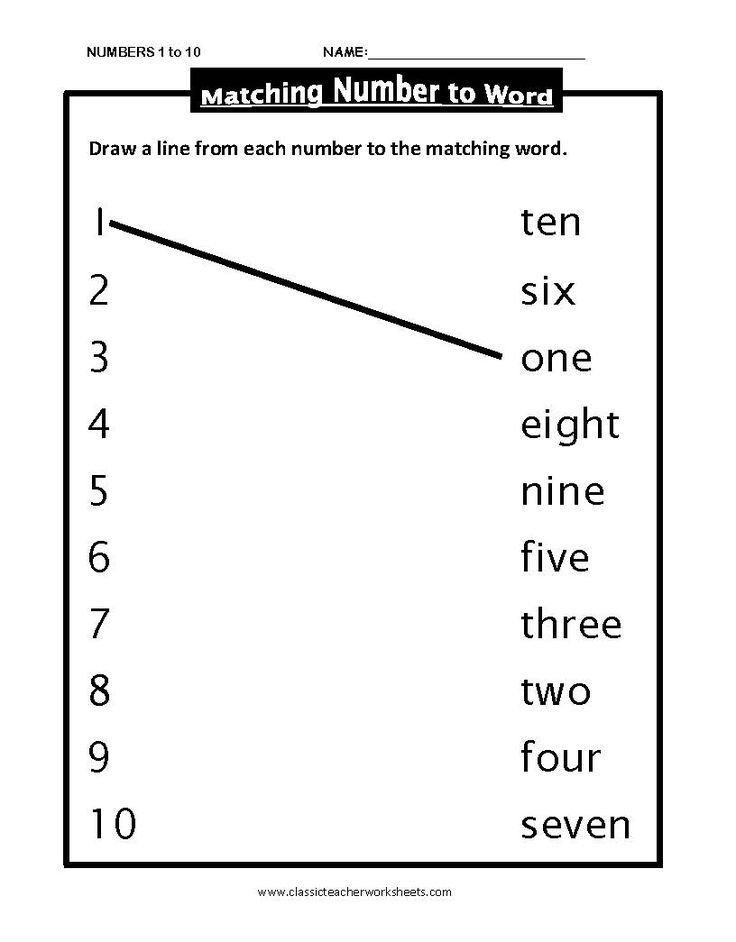
Learn more


